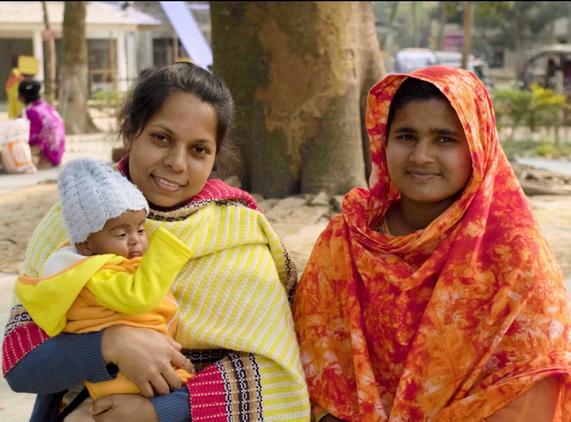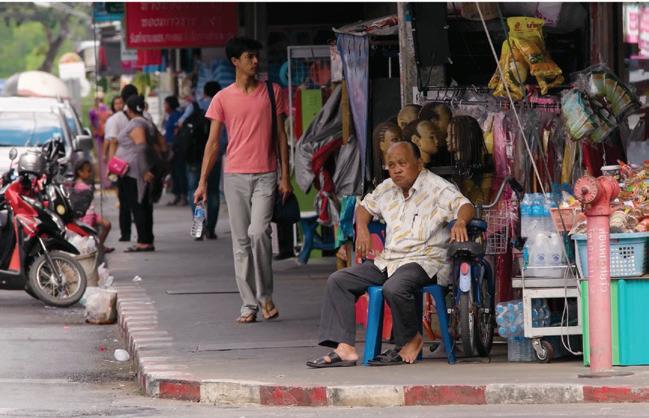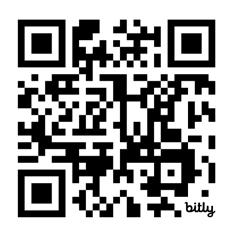
NIGEL CAMERON

EWAN GOLIGHER
EMERITUS
BRENT WATERS


NIGEL CAMERON

EWAN GOLIGHER
EMERITUS
BRENT WATERS
One of the first books I downloaded on Kindle was Eric Metaxas’ bestselling biography Bonhoeffer: Pastor, Martyr, Prophet, Spy. Though I was familiar with his name and his legacy as a theologian, it wasn’t until I tackled Metaxas’ book that Bonhoeffer’s story and the breadth of the martyr’s writings became apparent to me. I have subsequently read his classics Life Together and Cost of Discipleship, with the latter serving as a wonderful resource for an ongoing mentoring relationship I have with a third-year family medicine resident. I am now working through his Letters and Papers from Prison
Over the Christmas holiday, my wife and I saw the movie by Todd Komarnicki and Angel Studios Bonhoeffer: Pastor, Spy, Assassin. The movie received mixed reviews and a startling letter from 86 Bonhoeffer descendants who were highly critical of the movie and its message (they viewed it as championing Christian nationalism). Still, I believe this film is a timely and much needed reminder that the church is susceptible to bowing its knee to tyranny and political idolatry. In Letters and Papers from Prison, at the turn of 1942 to 1943, Bonhoeffer asks and then answers a crucial question from his jail cell:
“Who stands firm? Only the one whose ultimate standard is not his reason, his principles, conscience, freedom, or virtue; only the one who is prepared to sacrifice all of these when, in faith and in relationship to God alone, he is called to obedient and responsible action. Such a person is the responsible one, whose life is to be nothing but a response to God’s question and call.”1
In answer to God’s summons, Bonhoeffer showed himself to be one of the responsible ones and sacrificed his all on the gallows in 1945, days before the allies fully liberated Germany. This man of action wrote the oft quoted line in a 1933 essay The Church and the Jewish Question: “We are not to simply bandage the wounds of victims beneath the wheels of injustice, we are to drive a spoke into the wheel itself.”
Early in 2024, we chose the phrase “A Spoke in the Wheel” as the theme of the 2025 CMDA National Convention on May 1-4 in St. Charles, Missouri. Two of our plenary speakers this year, Ambassador Sam Brownback and Erin Morrow Hawley (who advocated before the U.S. Supreme Court in the 2023 case Food and Drug Administration v. Alliance for Hippocratic Medicine), as well as banquet speaker Ryan Bomberger, have all devoted themselves to the pursuit of truth and justice in our nation. CMDA’s Board of Trustees also chose to recognize Dr. Päivi Räsänen, a courageous physician and parliamentarian from Finland, as the annual President’s Heritage award recipient, which will be awarded during the convention. She is a Christian who has been taken all the way to the Supreme Court of Finland for publicly sharing her biblically consistent views on marriage and sexuality.
We are living in turbulent times in healthcare. The eminent professional medical societies of our day have taken hardline positions on abortion and so-called gender affirmation, positions which CMDA cannot accept, both from biblical and natural law arguments. At the same time, those associations have been reticent to support professionals who contend for the practice of conscientious medicine. There are also ongoing attempts by groups like Compassion & Choices to make assisted suicide and/or euthanasia legal in several states.
Bonhoeffer believed Christians have a responsibility to oppose those who cause harm, not just help those who are experiencing it. In this spirit, CMDA participated in an amicus brief to the U.S. Supreme Court in United States v. Skrmetti, which was argued before the court in early December 2024. Tennessee Attorney General Jonathan Skrmetti defended the right of states to make laws banning minors struggling with gender dysphoria or confusion from receiving hormones, puberty blockers and surgeries that risk life-long infertility and medicalization.
Proverbs 24:10-12 states, “If you faint in the day of adversity, your strength is small. Rescue those who are being taken away to death; hold back those who are stumbling to the slaughter. If you say, ‘Behold, we did not know this,’ does not he who weighs the heart perceive it? Does not he who keeps watch over your soul know it, and will he not repay man according to his work?” (ESV).
Deitrich Bonhoeffer challenged us to not only do wound care but to do wound prevention, to stop the forces of ideological oppression from harming the vulnerable in our spheres of influence.
How will you drive a “spoke in the wheel?”
Endnotes
1 Bonhoeffer, D.; Letters and Papers from Prison, 2015, Fortress Press, pg. 6
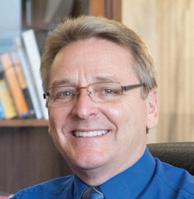
Mike Chupp, MD, FACS, is the CEO of CMDA. He graduated with his medical degree from Indiana University in 1988 and completed a general surgery residency at Methodist Hospital in 1993. From 1993 to 2016, he was a missionary member of Southwestern Medical Clinic in St. Joseph, Michigan, while also serving as a career missionary at Tenwek Mission Hospital in Kenya.
Join us for the premier gathering of Christians in healthcare at the 2025 CMDA National Convention on May 1-4 in St. Charles, Missouri. To register, visit natcon.cmda.org.
EDITOR
Rebeka Honeycutt
EDITORIAL COMMITTEE
Gregg Albers, MD
John Crouch, MD
Autumn Dawn Galbreath, MD
Curtis E. Harris, MD, JD
Van Haywood, DMD
Rebecca Klint-Townsend, MD
Debby Read, RN AD SALES 423-844-1000 DESIGN
Ahaa! Design + Production PRINTING Pulp
CMDA is a member of the Evangelical Council for Financial Accountability (ECFA).
CMDA Today™, registered with the U.S. Patent and Trademark Office. Spring 2025, Volume LVI, No. 1. Printed in the United States of America. Published four times each year by the Christian Medical & Dental Associations® at 2604 Highway 421, Bristol, TN 37620. Copyright© 2025, Christian Medical & Dental Associations®. All Rights Reserved. Distributed free to CMDA members. Non-doctors (US) are welcome to subscribe at a rate of $35 per year ($40 per year, international). Standard presort postage paid at Bristol, Tennessee.
Undesignated Scripture references are taken from THE HOLY BIBLE, NEW INTERNATIONAL VERSION®, NIV®
Copyright © 1973, 1978, 1984, 2011 by Biblica, Inc.® Used by permission. All rights reserved worldwide. Other versions are noted in the text.
DENTAL
P.O. Box 7500, Bristol, TN 37621 888-230-2637
main@cmda.org•www.cmda.org
If you are interested in submitting articles to be considered for publication, visit www.cmda.org/publications for submission guidelines and details. Articles and letters published represent the opinions of the authors and do not necessarily reflect the official policy of the Christian Medical & Dental Associations. Acceptance of paid advertising from any source does not necessarily imply the endorsement of a particular program, product or service by CMDA. Any technical information, advice or instruction provided in this publication is for the benefit of our readers, without any guarantee with respect to results they may experience with regard to the same. Implementation of the same is the decision of the reader and at his or her own risk. CMDA cannot be responsible for any untoward results experienced as a result of following or attempting to follow said information, advice or instruction.
The Journal of the Christian Medical & Dental Associations
12 ON THE COVER
Like Mother, Like Daughter: Passing the Torch
AmyGivler,MD,andMarthaGraceCourtright,MD
A side-by-side look at the impact of healthcare and CMDA on a mother and daughter

18
Medicine in God’s Kingdom
EricMcLaughlin,MD
Exploring a central question to the discussion of faith and healthcare
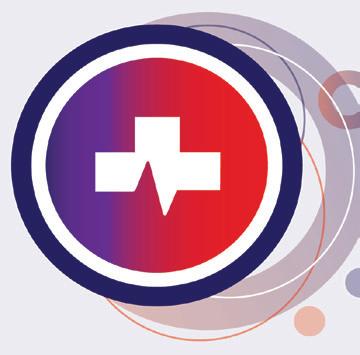
22
What’s Your CMDA Story?
WilliamGriffin,DDS, andLindsayHawkins
Sharing personal stories of how CMDA is a lifeline for a lifetime
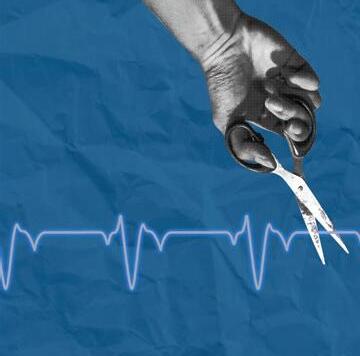
Where There is Despair, Let Me Bring Hope:
Assisted Suicide, the Moral Dissociation Curve and Compassionate Love
RichardW.Sams,II,MD,MA
How to be a beacon of light to the suffering in the face of a culture that supports assisted suicide
32

JohnPatrick,MD
The need for godly order in the foundation of ethics
REGIONAL MINISTRIES
Connecting you with other Christ-followers to help better motivate, equip, disciple and serve within your community
Western Region: Wes Ehrhart, MA • 6204 Green Top Way • Orangevale, CA 95662 • 916-716-7826 • wes.ehrhart@cmda.org
Midwest Region: Connor Ham, MA • 2435 Lincoln Avenue • Cincinnati, OH 45231 • 419-789-3933 • connor.ham@cmda.org
Northeast Region: Tom Grosh, DMin • 1844 Cloverleaf Road • Mount Joy, PA 17552 • 609-502-2078 • northeast@cmda.org
Southern Region: Grant Hewitt, MDiv • P.O. Box 7500 • Bristol, TN 37621 • 402-677-3252 • south@cmda.org

CMDA is excited to introduce Dr. John Pierce as the new Director of Medical Education International (MEI). Dr. Pierce practiced and taught obstetrics and gynecology at Virginia Commonwealth University for 16 years before moving to Lynchburg, Virginia in 2015 to practice and help establish the Liberty University College of Osteopathic Medicine. He now brings his encouraging spirit and willingness to follow the Lord to his work with CMDA. Dr. Pierce has previous experience serving as a healthcare missionary in Kenya, Macedonia and the Dominican Republic. In addition, he’s been a CMDA member for more than 25 years, served on CMDA’s Board of Trustees and helped establish OB/Gyn residencies in Kenya with the Pan-African Academy of Christian Surgeons (PAACS). Dr. Pierce and his wife Nicole have four children. Together they love being with their children playing pickleball or beach volleyball, surfing, cooking, hunting and exploring the outdoors. For more information about Dr. Pierce’s work and to get involved with MEI, visit cmda.org/mei
Our hearts are with the family members of the following CMDA members who have passed in recent months. We thank them for their support of CMDA and their service to Christ.
• Mr. Michael T. Gregg – Mountain City, Tennessee Member since 2005
• David Sharp, MD – Grand Rapids, Michigan Member since 1965
• Mrs. Hallie H. Herring – Hattiesburg, Mississippi Member since 2001
• Freda M. Bush, MD – Jackson, Mississippi Member since 1992
• Charles A. Herbst, MD, MS – Chapel Hill, North Carolina Member since 2003
• David E. Shacklett, MD – San Antonio, Texas Member since 1995
• Rod Nordberg, DDS – Bellevue, Washington Member since 2000
• William D. Lawrence, MD – Phoenix, Arizona Member since 1974
• Patricia C. Brown, MD – Bethesda, Maryland Member since 1983
• Emmanuel Akowuah, MD – Washington, D.C. Member since 1972
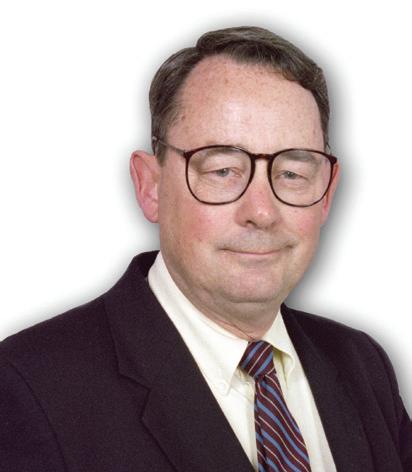
CMDA Past President Robert “Bob” Agnew, MD, passed away on December 15, 2024 at the age of 86. While in college at the University of Chicago, he felt God calling him to serve as a physician. He lived in Syracuse, New York; Philadelphia, Pennsylvania; and Dugway Proving Grounds, Utah while he served in the U.S. Army. When he moved to Fargo, North Dakota, he became the second heart surgeon in the state. Bob was married to his wife Elizabeth for more than 56 years until her death in 2016. In addition to being a member and leader in CMDA, Dr. Agnew was a member of Gideon’s International, Great Plains Harmony Barbershop Chorus and several different Bible studies, as well as a lifelong member of The Salvation Army at his church home, where he served as the Corps Sergeant Major. He served as CMDA President from 1999 to 2001, being highly engaged in CMDA ministry efforts through the CMDA Board of Trustees. We are thankful for the impact Dr. Agnew had in bringing the hope and healing of Christ to the world.
• Charles C. Tandy, MD – Dallas, Texas Member since 1959
• Robert G. Long, MD – Columbia, South Carolina Member since 1959
• David W. Hafer, DDS, MS – Polson, Montana Member since 1997
• Robert F. Agnew, MD – Fargo, North Dakota Member since 1961
• Arthur Wierenga, MD – Jackson, Michigan Member since 1992
Gifts received October through December 2024
• Elizabeth Backer in memory of Dr. Lynn Colip
• Hunter Wynkoop in memory of Tony Christiano
• Anne Dawson in memory of Dr. Peter E. Dawson
• Gregory Weigler in memory of Dr. Herb and Ruth Friesen
• Marcia Bosscher in memory of Peter Bosscher
• Sarah and Chris Hodge in memory of Curly Robinson
• Timothy and Jennifer Kitchen in memory of Elaine Brautigam
• Niall and Sharon Murphy in memory of Elaine Brautigam
• Sherman Grant in memory of Elaine Brautigam
• Tim and Brenda Sullivan in memory of Elaine Brautigam
• Nora Yip in memory of Gee Ying Yip
• Jay Mohler in memory of Doria Mohler
• Dr. Samuel Molind in memory of Dr. Robert Agnew
• Mark and Elizabeth Beenken in memory of Dr. Peter Nielsen
• Dawn Boyd in memory of Dr. Peter Nielsen
• Jennifer Wenzell in memory of Dr. Peter Nielsen
• Jasmine Han in memory of Dr. Peter Nielsen
• Gary Scott Voorman in memory of Gary John Woorman
• Janice Reed in memory of Janis Davis
• Lauren Bickel in memory of John Bickel
• Terry Schmidt in memory of Norma Schmidt
• Steve and Shannon McCune in honor of Don and Carol Shaffer
• Harvey and Sharon Rudy in honor of Emily Ferrara
• Mark Gaulke in honor of Rev. Wallace Gauke
• Willie Tsiu in honor of Stephen and Helen Joe
• Rick Klopcic in honor of Dr. Corrie Chumpitazi
• Jenny Baenziger in honor of Charlie Kelley
• Thomas Zoch in honor of Dr. Scott Erickson
• Scott Raber in honor of Dr. McKenzie Raber Bowling
• Jay Jones in honor of Dr. T. Bob Davis
• Barbara Cingel in honor of Emily Bayon
• Christopher Veley in honor of Ili Veley
• Steven Kator in honor of James G. Smith
• Harold Henderson in honor of Susan and Jonathan Morris
• Norfleet Thompson in honor of Tenwek Orthopedic Department
For more information about honorarium and memoriam gifts, please contact stewardship@cmda.org.
Dates and locations are subject to change. For a full list of upcoming CMDA events, visit cmda.org/events
501 Foundations for Coaching
April 4-5, 2025 • Virtual
Remedy East 2025
April 11-12, 2025 • Lynchburg, Virginia
Turkey Tour – Seven Churches of Revelation
April 12-24, 2025 • Turkey
2025 CMDA National Convention
May 1-4, 2025 • St. Charles, Missouri
503 Coaching Change, Transition and Transformation
May 6 – June 10, 2025 • Virtual
2025 Women Physicians & Dentists in Christ (WPDC) Annual Conference
September 4-7, 2025 • Albuquerque, New Mexico
Greece Tour – In the Footsteps of Paul September 19-26, 2025 • Greece
Reformation and Luther Tour
October 11-23, 2025 • Germany, Prague, Switzerland and France
Global Missions Health Conference
November 6-8, 2025 • Louisville, Kentucky
CMDA is excited to announce a new opioid and substance use disorder and treatment course now available in the CMDA Learning Center. The 2023 MATE Act requires prescribers to complete at least eight hours of continuing education on substance use disorder assessment and treatment before their new DEA renewal. This new course in the Learning Center includes four modules that satisfy this requirement for most U.S.-based prescribers. Plus, it is a one-of-a-kind, wholeperson addiction course, which integrates faith and science in approaching and treating addiction. And even better, it is FREE for CMDA members! For more information, visit cmda.org/learning.

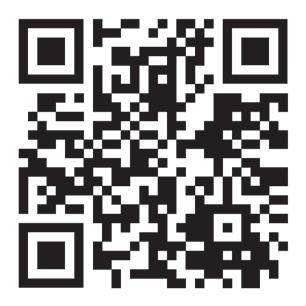



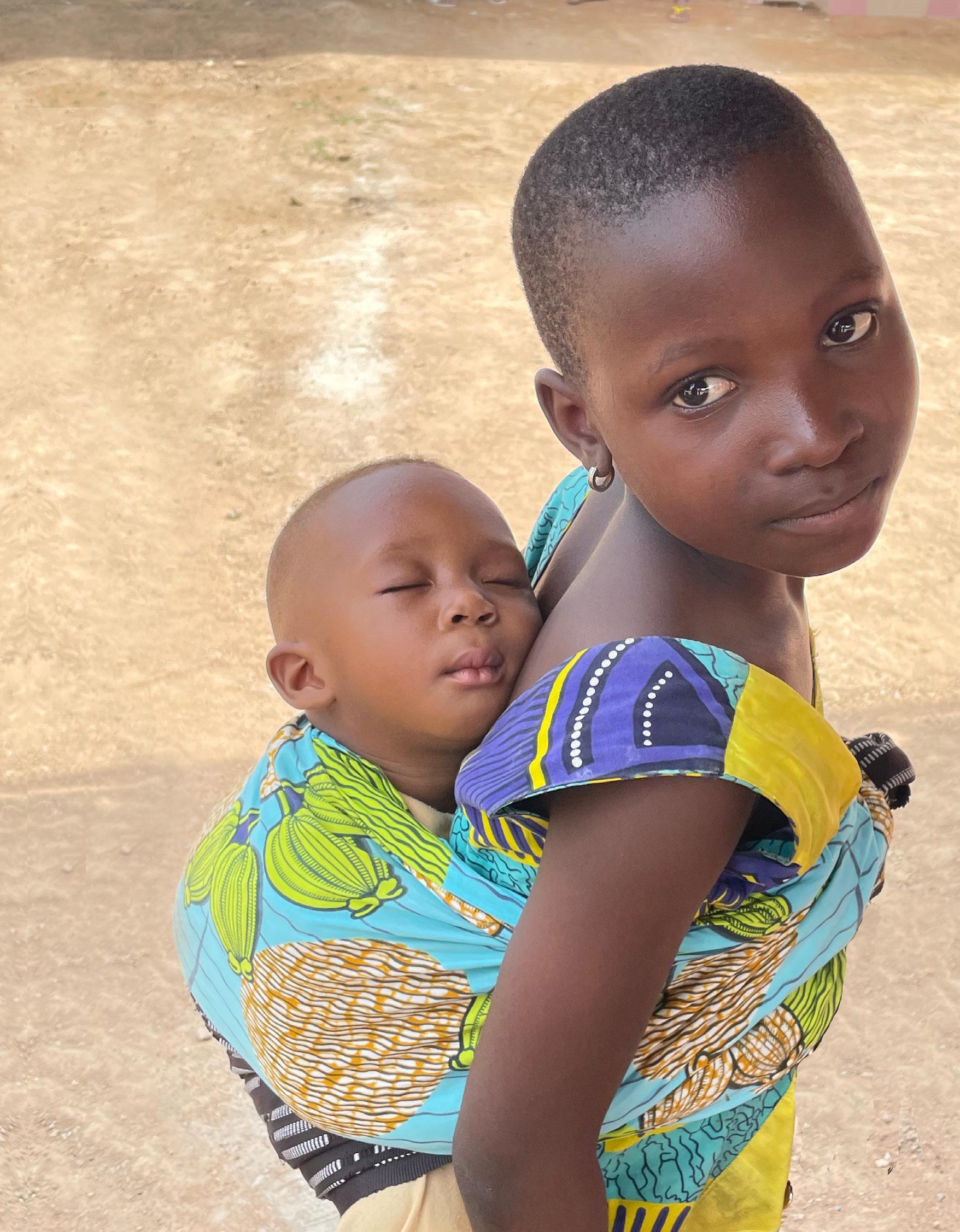
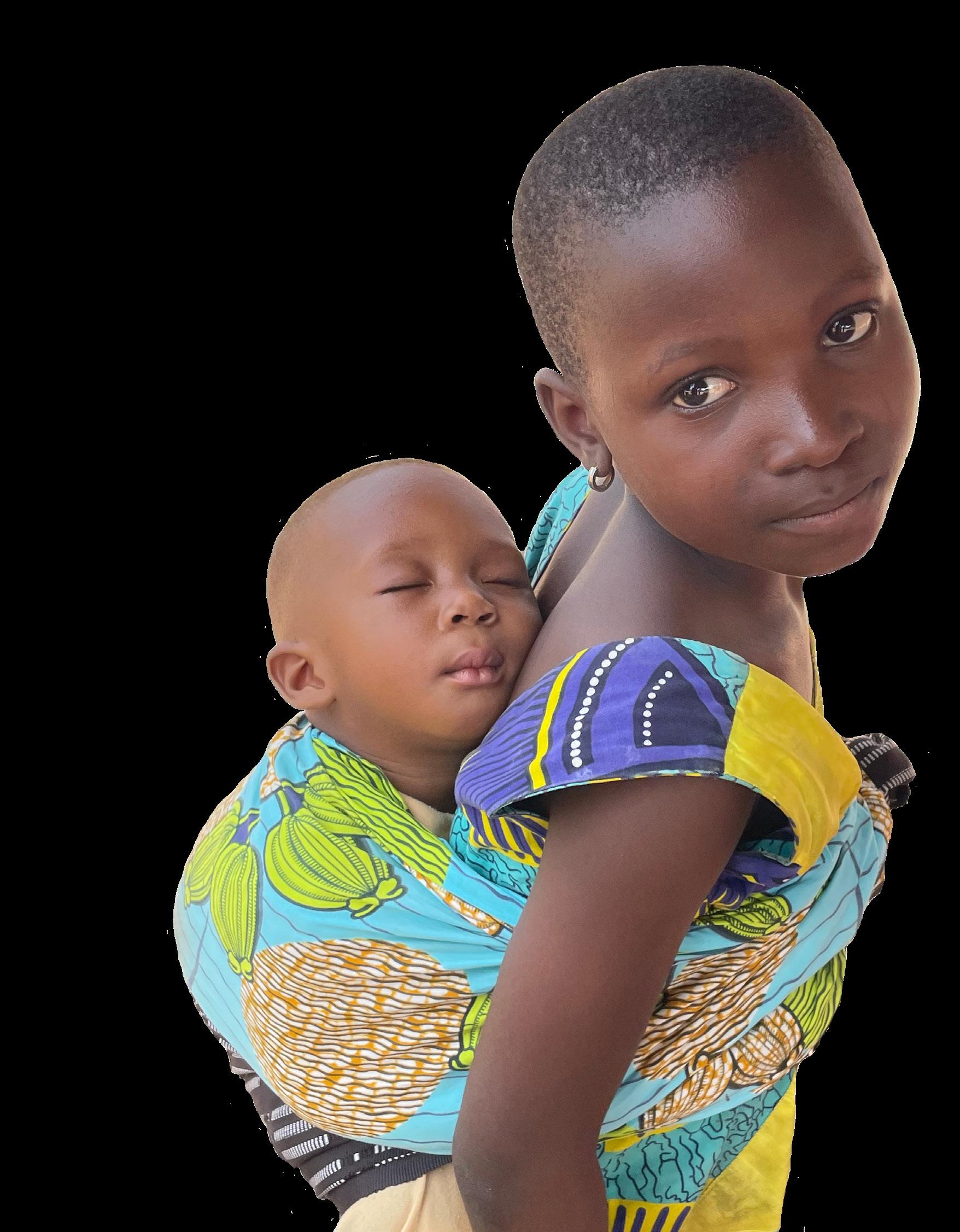
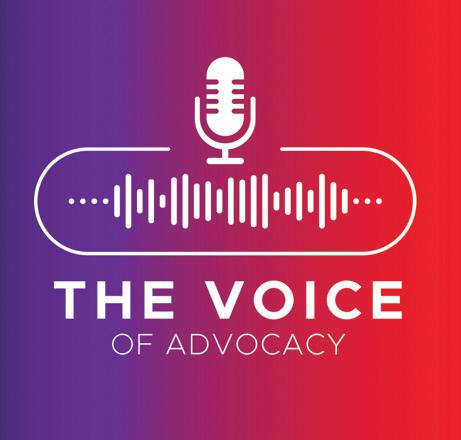
Included in CMDA’s network of podcasts is The Voice of Advocacy with Senior Vice President of Bioethics and Public Policy Jeff Barrows, DO, MA (Ethics). This monthly podcast features special guests and members of the Advocacy team. Listen to learn more about Advocacy’s grassroots efforts at the state and federal level, legal and legislative victories and how CMDA members can be involved in achieving justice for the vulnerable. To listen to the latest episode, visit cmda.org/advocacy.
As a result of a partnership between CMDA and Alliance Defending Freedom (ADF), we are now offering free legal consultations for CMDA members who may be experiencing conscience freedom issues in the workplace. Exclusively available to CMDA members, this program is designed to serve members who feel they are being discriminated against in the workplace due to their firmly held moral and religious beliefs. We believe conscience freedoms have profound ethical and religious importance within the healthcare profession, and we encourage colleagues, institutions and governments to respect these freedoms. If you feel your conscience freedoms are at risk, please visit cmda.org/legal
The CMDA Learning Center offers complimentary continuing education courses for CMDA members. This online resource is continuing to grow with new courses to help you in your practice as a Christian healthcare professional. All continuing education courses are available at NO COST to CMDA members. For more information and to access the CMDA Learning Center, visit cmda.org/learning
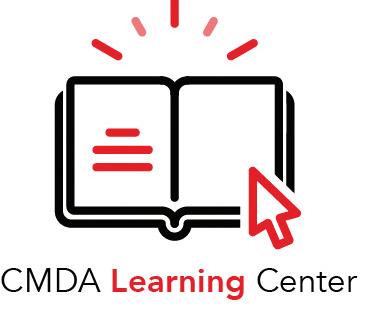
Have you downloaded CMDA Go yet? Our mobile app, CMDA Go, is available to download, so visit your device’s app store to download it today. In the CMDA Go app, you can set up your personal CMDA profile, check out the latest news from CMDA, listen to CMDA Matters and other podcasts, renew your membership and make your dues payments, access a variety of downloadable resources, interact with other members through the discussion forms and join group chats. For more information, visit cmda.org/app
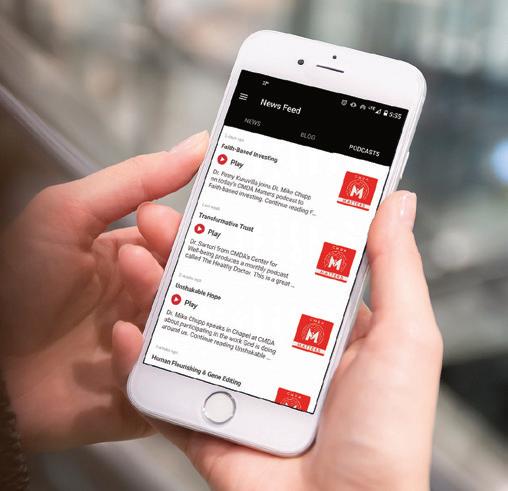
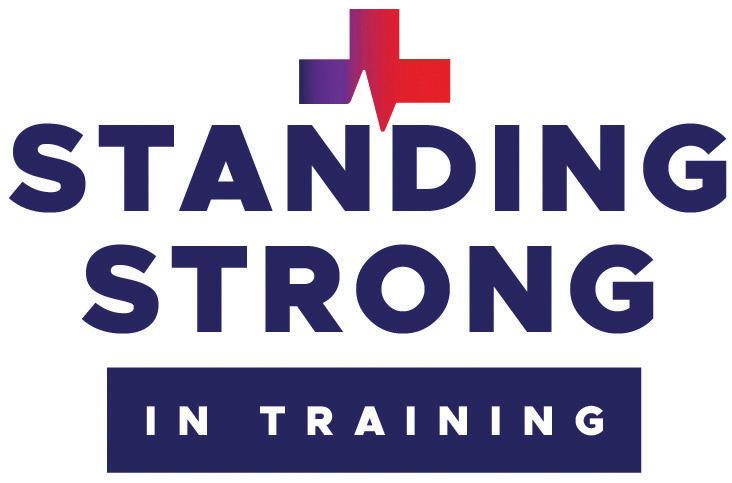
As one of CMDA’s long list of resources for our members, Standing Strong in Training is an on-demand video series that helps healthcare students and residents stand up against the cultural pressures facing Christians within healthcare today. The curriculum’s seven modules are designed for group settings, allowing attendees to solidify their foundational worldview beliefs regarding important issues, such as the beginning of life, end of life and biblical sexuality. Each module also offers ideas of how to winsomely defend biblical values and positively interact with others in developing their worldview beliefs. For more information and to access this study, visit cmda.org/standingstrong .
Are you listening to CMDA’s podcast with CEO Dr. Mike Chupp? CMDA Matters is our popular weekly podcast with the latest news from CMDA and healthcare. A new episode is released each Thursday, and interview topics include bioethics, healthcare missions, financial stewardship, marriage, family, public policy updates and much more. Plus, you’ll get recommendations for new books, conferences and other resources designed to help you as a Christian in healthcare. Listen to CMDA Matters on your smartphone, your computer, your tablet…wherever you are and whenever you want. For more information, visit cmda.org/ cmdamatters .
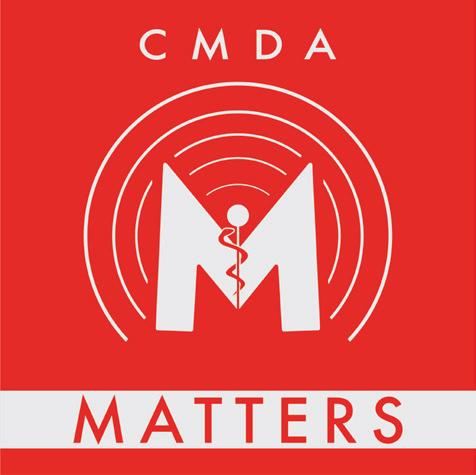


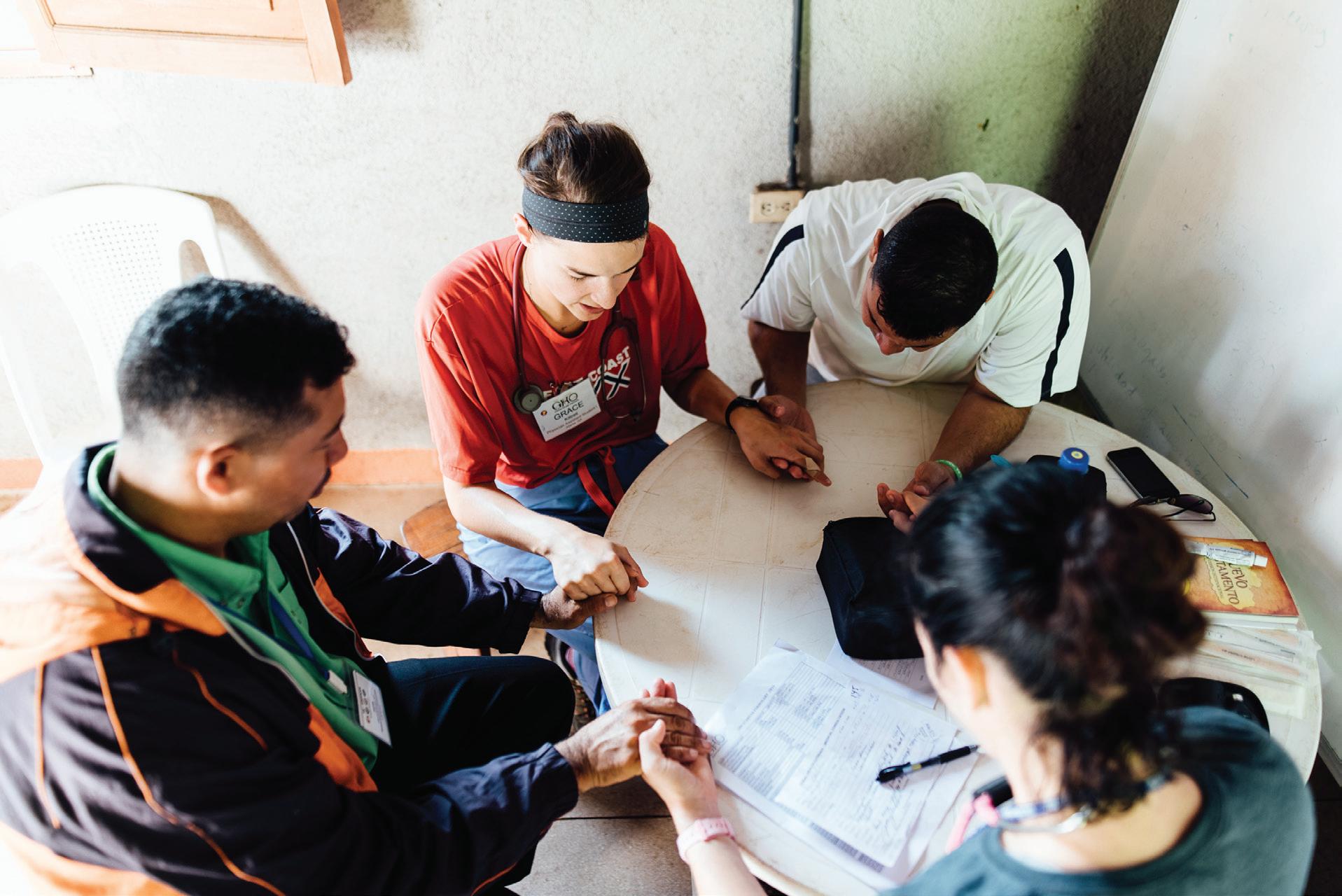






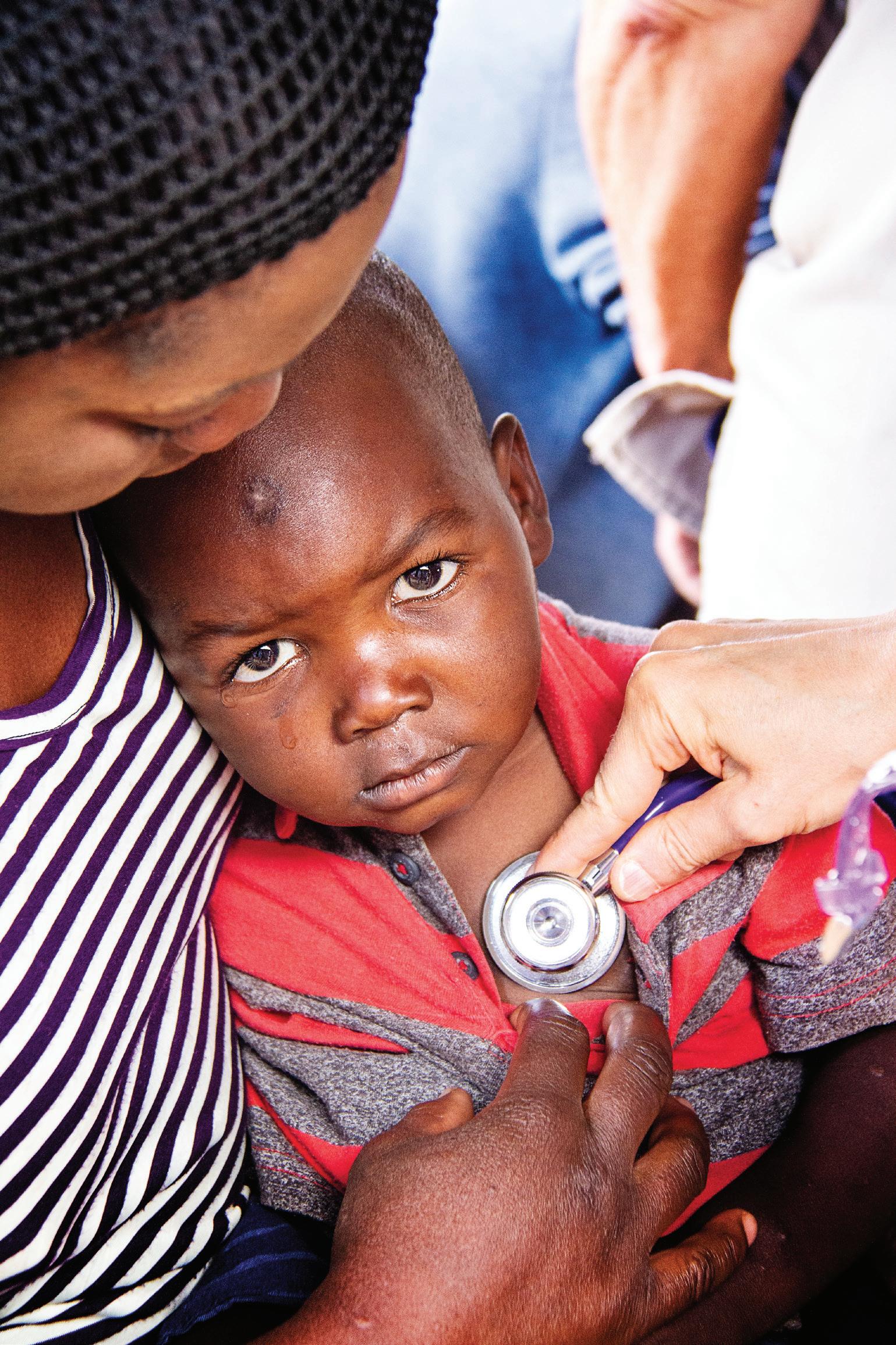
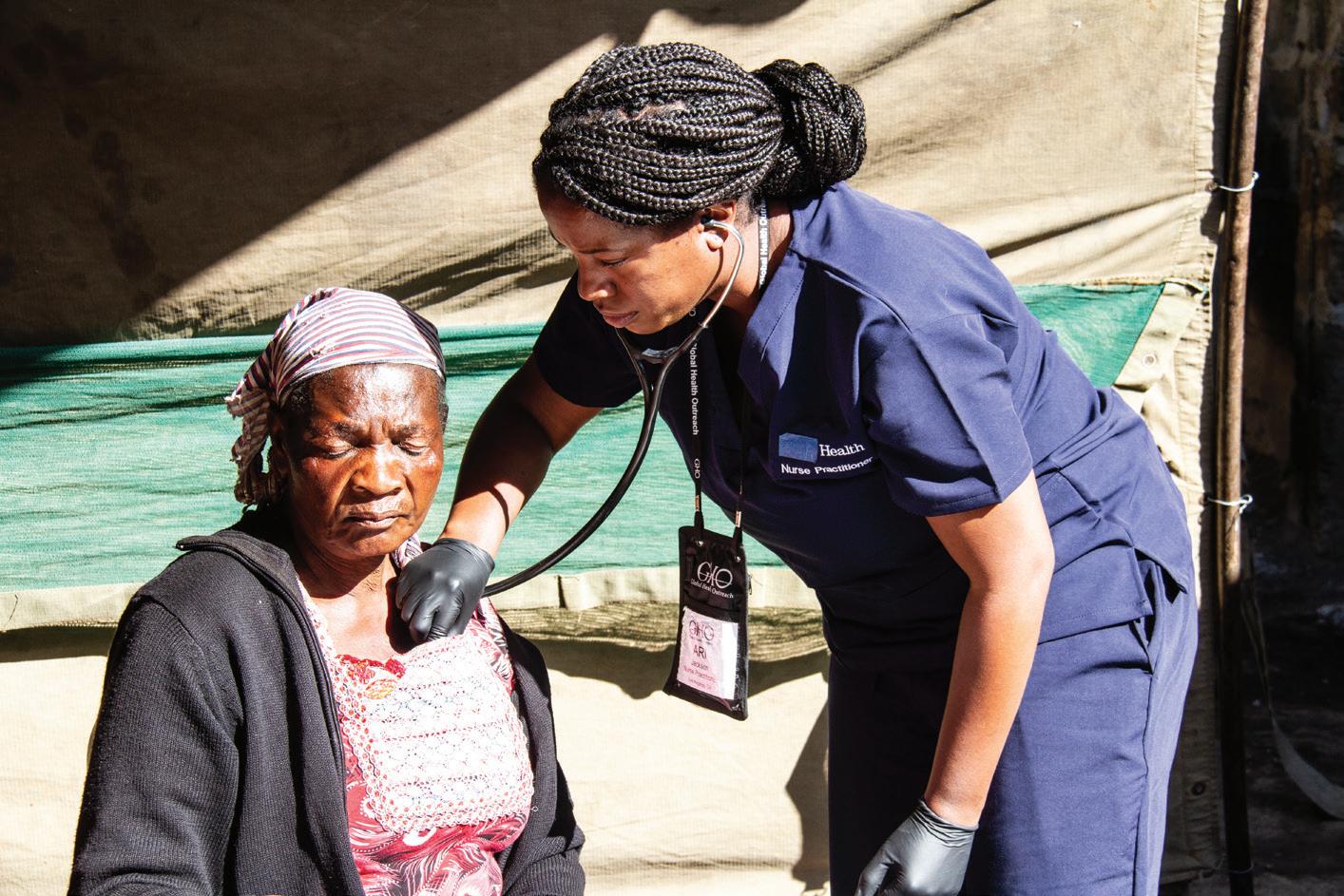
CMDA’s Global Health Outreach sends short-term healthcare mission teams around the world to places like Central America, Africa, Western Europe, Middle East and Asia. We serve the poor and needy who have no access to healthcare by offering medical, dental and surgical care.
Our trips are open to anyone interested in serving others through missions, whether you have experience in healthcare or not. Joining a team is easy, so visit cmda.org/gho to find a trip that fits your schedule. Join us today as we bring the HOPE and HEALING of CHRIST to the world through HEALTHCARE .
“This ministry is truly impacting lives, not only of the patients but also of the ones who serve on the trips. It was the experience of a lifetime.”
—Trip Participant
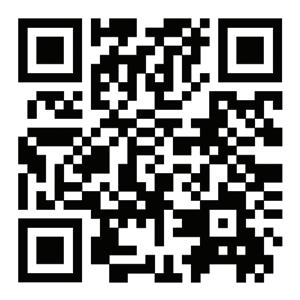

Dear Martha Grace,
You ask how I came to choose medicine. I guess I’d have to say it chose me. That is, I was 12 years old when I first heard and responded to the good news of salvation through Jesus, and simultaneously, in some mysterious way, I knew I was supposed to be a doctor. I had never considered medicine before I became a Christian, and afterward I never considered anything else.
Mom had trained as a nurse, though she stopped working as soon as your Aunt Franny was born. You know how proud she was to be a nurse, and I think she was a bit sad I didn’t go into nursing. My laser focus was on becoming a physician.
Growing up, I didn’t know many professional women, at least those who were married. That was even more true of our friends at church. Few there worked outside the home. Jesus had captured my heart, and so I only wanted to marry a Christian. But what Christian man would want to marry a physician? So I assumed God wanted me to be an unmarried missionary overseas. Plenty of heroic women, generally single, had blazed that path, and I admired them. Could God use me there also?
Then your dad came along—a medical student who loved Jesus and wasn’t fazed by the thought of a professional wife. It was CMDA that brought us together, since we were both attending the meetings and social events it sponsored.
We married during medical school, and for years we barely had time to nurture our relationship. The thought of bringing a baby into the mix would have taxed our already depleted resources. I know there are women who have babies during medical training, but their stamina surpasses mine.
Still, we hoped to have children one day. In fact, even before marriage I’d bought the cutest little infant-sized set of scrubs, complete with a caduceus and “MD” on its top. It wasn’t that I wanted my (potential) kids to become doctors—I wasn’t thinking that far ahead—but I loved medicine and hospitals and taking care of patients. I was (and am) immersed in that world.
So, imagine my joy when—16 months after finishing residency—you were born, and I was able to put that little set of scrubs on you. One of my all-time favorite photos is the one of Mom and you, with you wearing those scrubs and clutching my stethoscope.
Wearing scrubs suited you well, even then.
With much love,

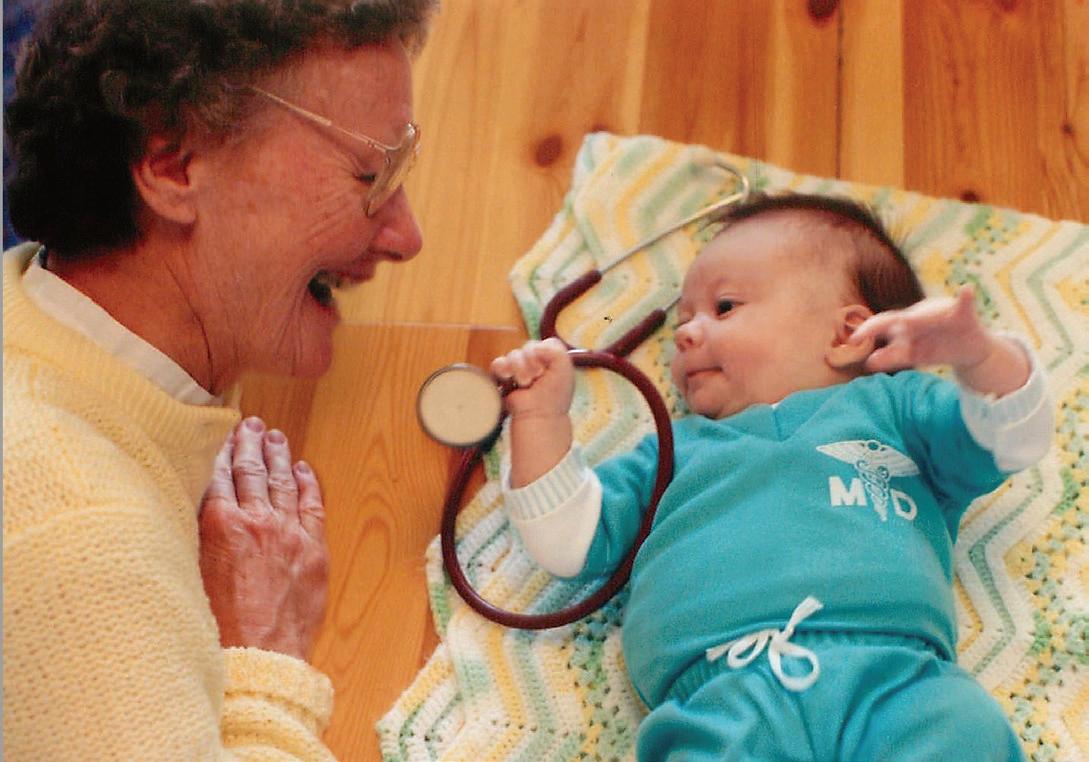
Dear Mom,
Growing up, it was easy to see why you and Dad love what you do. You love your patients, and your patients love you. I remember that if I ever came to visit one of you at work and I let it slip I was your daughter, a patient would inevitably grab me and tell me how grateful they were for you and your care for them. It didn’t really bother me if Dad had to get called in to the hospital or if you had to answer a patient call at home. I knew you were helping people, and I knew you saw it as a vocation, not just a job.
It felt pretty normal for me to have a working mom. You have said it was much less common in the years you were growing up, especially in the Christian community. I suppose, in retrospect, it wasn’t as common even when I was growing up as it is now. I don’t remember you ever disparaging mothers who stayed home, in fact you chose to work only part-time so you could be more present during our childhoods. Even that took some coordinating—school pickup and drop off, household tasks, being present for the performances and games. I am grateful to have had that example since I am now the working parent, and let me just say this: It is not easy!
I do think my desire to be a physician started pretty early, though not quite as early as when I was wearing that infantsized set of scrubs! You probably remember my teenage years when I considered a couple of different careers, but nothing else really intrigued me like medicine.
Did you and Dad push me into medicine? No; in fact, you might have been slightly discouraging in the beginning just to

make sure I knew what I was getting myself into. Once I made up my mind, you were nothing but supportive. I was so grateful to have your insights and direction as I embarked on that journey. When I didn’t get into medical school the first time I applied, I remember several conversations on the next steps to take. How I valued your advice and perspective!
Much love,
Dear Martha Grace,
I’m happy you didn’t feel “pushed” into medicine, but even happier you didn’t begrudge our commitment to it, despite the obligations of parenthood, which we took seriously.
The early years of parenthood were crazy busy. Having three kids so close together was strategic in several ways. That is, we were going through only one “phase” of parenting at a time. When you were toddlers, you were all toddlers. When you were school-aged, you were all school-aged. This worked well for my brain, as I could focus on a single developmental stage. However, it also meant life was often chaotic.
I was tired. Deeply. And chronically. Don and I loved being your parents, but we were also working at the hospital—me part-time seeing outpatients, him full-time as residency director. Our friends were mostly fellow parents or folks from church. I longed to have women friends who understood the world of medicine. That is why—the first I heard of it—I jumped at the chance to attend a conference of Christian women physicians. It seemed too good to be true—fellow women, fellow physicians, but most importantly fellow followers of Christ.
I didn’t actually meet anyone at that first conference, ironically, because I was so emotional at being in the same space with Christian professional women that I pretty much just sat in the back row weeping. It’s hard to meet people when you’re weeping. And I do not, as you know, weep often. I have not missed a Women Physicians & Dentists in Christ (WPDC) annual conference since then. And, without further weeping, I have made cherished friends. So many women in this photo are among my favorite people, and I know if I could just hang out with the ones I don’t know, we’d have much in common and we’d become friends.
I love seeing you in this photo. Little did I know when I first became involved with WPDC that it would one day also be important to you. First, of course, you needed to choose medicine as a profession, and I am so glad you did. I remember when you were applying to medical school and an interviewer asked what your father and I, both doctors, thought of your following suit. You said we were happy about it, which was and is true, but he was astonished. Most medical parents, apparently, actively discourage their children from medical careers. That makes me so, so sad. Caring for my patients all these years has been such a privilege, and it’s been so full of joyful moments.
I know I thanked you at the time, but I want to thank you again for asking Don and me to hood you at your medical school graduation ceremony. I treasure the memory.
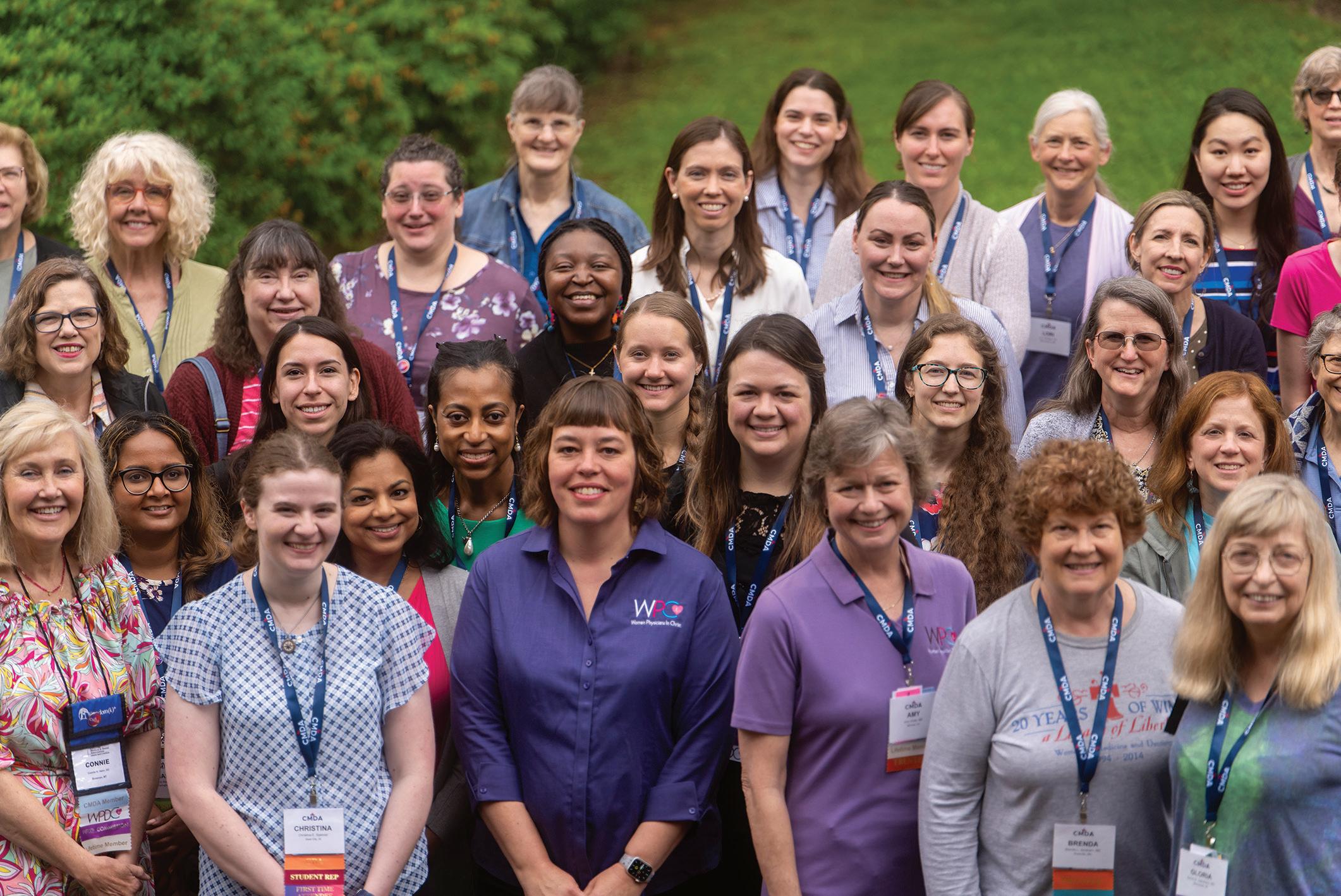
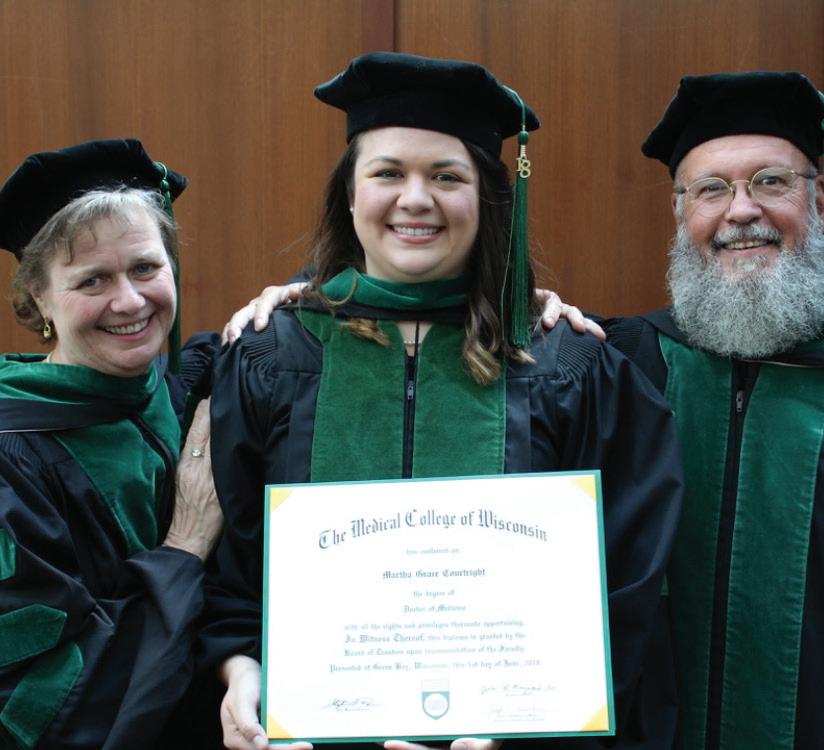

I know how much CMDA meant to me as a medical student, and I was glad you also had an active student chapter. I loved watching you move through medical training, especially when we could start discussing cases, trying to tease out a difficult diagnosis or figure out the best treatment for a particular illness.
Early on, I was the expert, or at least the one more in touch with “the real world”—that is, how medicine is realistically practiced today. Over the years, though, especially after you finished family medicine residency and started working, that balance tipped. I’m now much more likely to be asking you about current treatments, especially regarding obstetrics and gynecology. Your knowledge base is far superior to mine. I’m still your mother, but my position has shifted from being leader/director to being mentor/peer.
I value you as a colleague.
With much love, Mom 2
Dear Mom,
It has been a unique experience making the transition from the mother-child relationship to more of a peer relationship. However, I can certainly say I have appreciated your insights over the years, especially when it comes to what it takes to make a medical marriage work.
You and Dad don’t have a perfect marriage (who does?), but I always saw you supporting each other. Still, I never really planned to get married before medical school. Marriage is hard and medical school is hard, so trying to do them both at the same time didn’t seem to make sense. I felt a bit like you did before you met Dad; that is, it didn’t seem like most men would want a medical wife, especially not one who is about to go through several years of training. Then, as you put it, “along came Kyle.”
I am so grateful to have Kyle in my life. It’s hard to envision what it would have looked like to go through training without him, but what I can envision seems so much harder and lonelier than it was.
Before we got married, I remember you trying to prepare us. You and Dad sat us down to talk about what a marriage going through medical training might look like. I think you had seen so many couples struggle in their medical marriages over the years that you wanted to do what you could to set us up for success.
You told Kyle he would likely go long stretches with barely seeing me, and this was not by my choice. You told me you thought Kyle had the personality, especially the flexibility, to be able to handle it. I think the word you have used to describe him is “unflappable.” Your advice to us was twofold: One, have realistic expectations of each other, and two, invest in a local church community. We are both incredibly grateful for that advice. While I wouldn’t say medical school and residency were easy on our marriage, I do feel those early conversations set us up for success.
As a college student, I remember helping you with the WPDC conference you were organizing. I met several of the women at that conference who I am now working with on the WPDC Commission. You talked about how revolutionary that community was for you, to have a cadre of women who really “got” you. I do have people in my life I can talk to about motherhood and a shared career. However, if I didn’t have WPDC, I would have few people in my life who could understand the challenges of being a mother, working as a physician and being a believer in Christ. Having a sisterhood I can share the trials and joys of all these facets of life is really remarkable, and it is so appreciated.
My first CMDA National Convention was in medical school, when a group of us students road-tripped through the night from Wisconsin to North Carolina to get to it. I think that was the first conference we attended together. I remember how special it felt to be able to discuss the speakers and presentations, be introduced to your friends and share that experience together. I may have lost count, but I think we are now at seven CMDA/WPDC conferences attended together!
Much love,

Dear Martha Grace,
Looking back at your childhood, I find myself second-guessing a number of my choices. Raising children is so full of unknowns. Who is this little person God entrusted me with? What is her personality, and how should I adjust my mothering to account for that? How can I prepare him for the challenges he and his entire generation will face?
Starting out, none of us parents know the answers to those questions. I am cheering you on as you embark on your own parenting journey. What will life be like for Izzy and Liam in 20 or 30 years?
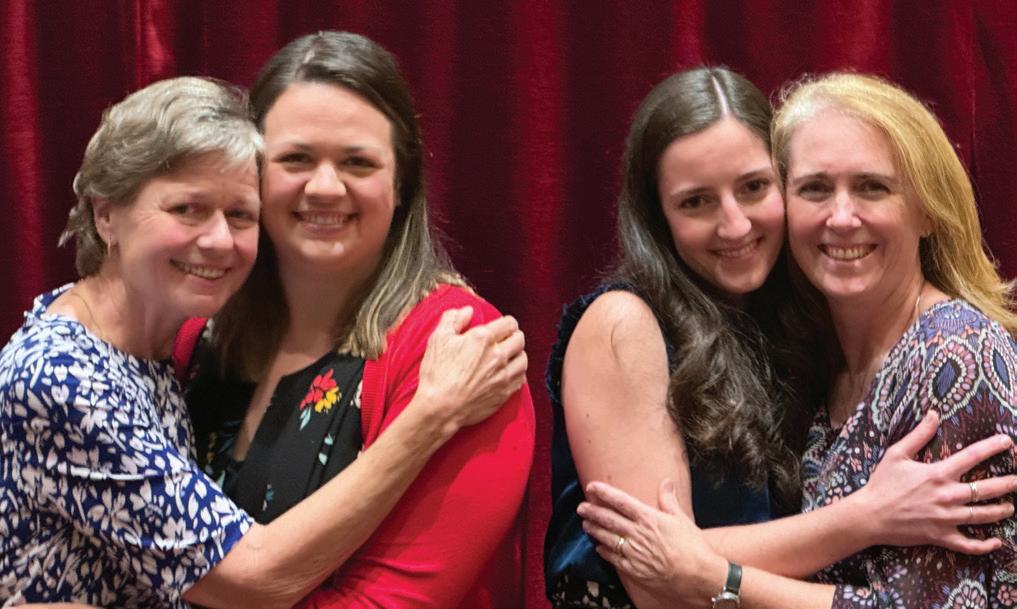
I am a Boomer who raised Millennials, and you are a Millennial who is raising Gen Alphas. Of course, every human is unique, but generations do tend to have their own distinctives. My generation tends to persevere in jobs even if they’re not fulfilling, and in our parenting, we tended to hover. Your generation is less willing to have work define you, and life outside of work is prioritized. What will be the defining characteristics of Gen Alphas? How can you and Kyle parent them now for their future needs then?
Of course, you don’t know. I don’t know. Nobody knows. We can only lean on Jesus every day for wisdom on how to “Direct your children onto the right path” (Proverbs 22:6a, NLT). That certainly means pointing them to Christ as the source of all goodness. Know that I pray for you and for them every day.
With much love,

Amy Givler, MD, is a family physician in Monroe, Louisiana, caring for outpatients in the same indigentcare hospital she trained in 40 years ago. She and Don, her fellow-physician husband, raised three children and are now enjoying grandparenthood. She serves on the CMDA Board of Trustees and has had leadership roles in the Women Physician & Dentists in Christ (WPDC) Commission. Together, Don and Amy are active in their church, help lead Marriage Enrichment Weekends for CMDA and have led and participated in many global health trips over the years. Amy is a writer for CMDA’s The Point blog, and she is the author of Hope in the Face of Cancer: A Survival Guide for the Journey You Did Not Choose
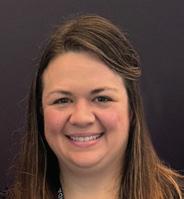
Martha Grace Courtright, MD, is a family medicine physician practicing full-scope medicine in Hayward, Wisconsin. She has been a member of CMDA since medical school and is also a member of the American Academy of Family Physicians. She has served on the Women Physicians & Dentists in Christ (WPDC) Commission since 2020. She received her undergraduate degree in theology at Wheaton College and her medical degree from Medical College of Wisconsin. She has been married to Kyle for 11 years and has two children, Isabelle (4) and Liam (3).
Women Physicians & Dentists in Christ (WPDC) is an outreach ministry of CMDA to provide resources for Christian women physicians and dentists to integrate their personal, professional and spiritual lives. We encourage and support Christian women and physicians as we share the unique challenges of our multiple roles. To learn more and get involved, visit cmda.org/wpdc.

































































































































































































































EricMcLaughlin,MD
Come to think of it, why don’t we raise this question more often? Is there a more central question to any discussion of Christian faith and the healthcare profession?
Evangelical Christianity has never had difficulty understanding how a Christian healthcare professional might be able to speak a message of the truth and hope found in the salvation offered by Jesus in the context of a hurting patient or her family. Our theological framework makes it easy to understand why God would care about medicine that leads to evangelism.
Without diminishing the value of evangelism at all, this is not a sufficient paradigm for a Christian physician. If that’s all there is, why would I treat a Christian patient? Why would I treat a patient with severe developmental disabilities who cannot acknowledge acceptance of a Christian message? Why would I be engaged in population health or prevention?
I want to ask about the medicine itself: The ability to take a history and physical and find out what’s wrong; the relief of physical suffering; the regaining of function and the prolonging of life; the continuing education credits; the clinical research and the development of protocols; the management of personnel; and even the electronic medical records. All the trappings that come together to create the medical profession. Why does God care about it?
Every Christian healthcare professional must ask this question and find some kind of internal answer to motivate the work we do. In the course of completing our work, many of us sense the intrinsic value of caregiving, but we may find it rather hard to articulate to someone else what that value is. Within the scope of the Christian worldview, within the scope of what we believe as Christians about God’s eternal purposes, what is the point? How do we understand our efforts at terrestrial healing in a world where everyone dies? Where does healthcare fit?

Eric McLaughlin, MD, is a plenary speaker at the 2025 CMDA National Convention on May 1-4 in St. Charles, Missouri. He will also be speaking during a breakout session in a new track focusing on healthcare missions. To learn more and register for the event, visit natcon.cmda.org
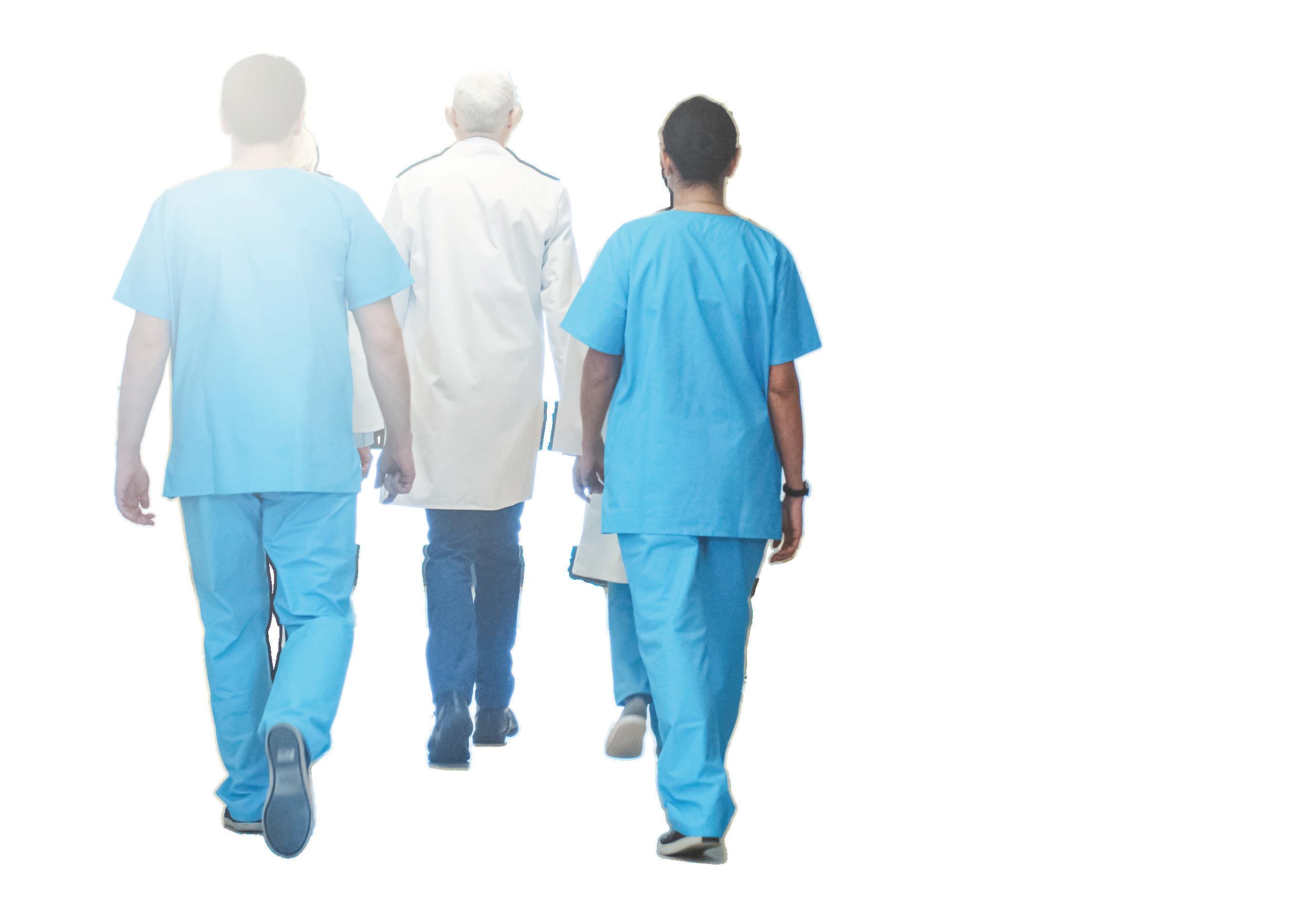
Asking this question in medical school, my study of the Bible revealed to me the centrality of the message of God’s kingdom in the proclamation of Jesus. Mark 1:15 records the first words of Jesus in that gospel: “The kingdom of God has come near. Repent and believe the good news!”
What good news? I would be tempted to answer that with an announcement of salvation from sin, except Jesus hasn’t yet said anything else in Mark other than these words. The good news is the news Jesus just announced—the kingdom of God has come near. This good news is the primary message Jesus announced.
This revelation rang so central that I immediately asked, “What then is the kingdom of God?” Fortunately for us all, Jesus spends an inordinate amount of time unfolding this question. His parables often start with, “The kingdom of God is like….” His miracles show us glimpses of what life is like in His kingdom. To rush a summary that is better answered by reading all four gospels, I propose the kingdom of God is “all of life under the rule of the king.” Kings don’t rule over an idea, or a club of common interests, or just a certain slice of society. Kings rule over everything in the kingdom. That the kingdom of God is near is good news precisely because the King is so good.
With this understanding of the good news of the kingdom of God, we can return to medicine (or any other profession or domain of society, for that matter) and ask as Christians: “What does this domain look like when God rules?” Because God is surely the King of all of life, the answers to this question give us a foundation for professional calling. To start off a necessary ongoing conversation, here are three implications of understanding medicine through the lens of the kingdom of God.
Medicine in God’s kingdom seeks effective healing. By one count, 26 out of Jesus’ 37 recorded miracles were healings of physical disease. Why? Numerous ways exist to demonstrate power, but Jesus habitually healed, because His miracles are glimpses of the kingdom of God. Obviously, all of those healed people died again, but the healings are a foretaste of how, in the fullness of God’s kingdom, “…There will be no more death or mourning or crying or pain…” (Revelation 21:4).
What about us? The healthcare profession is far from miraculous, and our world will still be dying after our best efforts. Yet, effective medicine can give a glimpse of the type of restorative
healing God will bring to fulfillment in His kingdom. The efforts of Christian healthcare professionals to bring about healing proclaim to the world something about the kingdom of God that was important enough to Jesus to prioritize most of His miracles on: in God’s kingdom, we are made whole again.
Second, medicine in God’s kingdom seeks justice. Our best example of what life looks like when God is the king is found in Jesus, and Jesus gives us a powerful vision of justice in God’s kingdom. He made a point of prioritizing the poor and the meek, saying they are indeed among the blessed in His kingdom. He sought out the company of many people who were despised in the eyes of society, rather than show a preference for relationships with those in positions of honor and power. Repeatedly, He tells us the last will be first. In Jesus, we see that when God’s kingdom is near, the injustice of the world is unacceptable. To the extent we work to bring God’s rule to bear on the domain of healthcare, injustice will be challenged in Jesus’ name.
At present, access to the potential healing capacity of medicine is incredibly unevenly distributed, both domestically and especially globally. The reasons for this uneven distribution are complex, and the solutions to remedy it will be equally so. Nevertheless, Christians in healthcare must be united that this injustice reflects the kingdom of the world, not the kingdom of our Savior. We cannot believe that someone who is viewed by the world as “the last” will really and truly be “the first” in God’s kingdom and still accept that she be treated as the last by what our profession has to offer. When God is ruling, “…good news is proclaimed to the poor” (Matthew 11:5b).
As Christians, we also understand God’s justice does not stop at modern political borders. God’s kingdom is not just “from sea to shining sea,” but rather “…the whole earth is full of his glory” (Isaiah 6:3b), and His kingdom is composed of “…every nation, tribe, people and language…” (Revelation 7:9). Many of the greatest healthcare inequities existing today are across the globe. Millions of lives are ravaged by problems which medicine can help but which medicine is not yet sufficiently helping. These lives are a combination of those who are our brothers and sisters in Christ and those who need to hear and see that Christ has conquered death. When Christian healthcare professionals seek to care about those who are far away, they give the world a powerful image of what it looks like to follow One who seeks us out when we are suffering far from Him.
qualities do not naturally characterize us. It is indeed very good news that we will not stay the same in God’s kingdom.
Just like our imperfect healings and our imperfect striving for justice, after all our earthly sanctification, we may still look more like the old man than like the new creature God promised to make us. But in the same way, the work of the Holy Spirit in us is real, and the transformation God brings about in us provides a glimpse of what is coming in the fullness of His kingdom.
What does this mean for healthcare? The practice of healthcare in God’s kingdom—compassionate, sacrificial healthcare that seeks to really believe that whatever we do for the least of these, we do for Jesus the King—this medicine will break us. Whatever victories and joys we may find, they will surely be accompanied by trials and disappointments and the big old mess which is God’s work in this broken world. The mess doesn’t necessarily mean we are doing it wrong, any more than the trials of Jesus’ life did. However, the mess will bow our proud heads and lead us to admit that we do not have what we need for this endeavor in our own strength. The mess of medicine will remind us there is only one King who is not us, and in that way, God’s kingdom will come in our hearts even as we work to make it known to the world.
Finally, medicine in God’s kingdom will transform us. Jesus says the kingdom of God is like a man who must forgive because he has himself been forgiven infinitely more than he has been wronged. Jesus proclaims that life in God’s kingdom is marked by humility, repentance and sanctification. All these
Why does God care about medicine? Because in His power, God is making all things new. Like countless other domains of life, God calls us to imagine what medicine looks like when His rule is brought to bear in this arena. Effective healing, just caregiving and transformation of our own hearts as we care for others are only three characteristics that must mark Christian healthcare. How these three play out and what other characteristics should be added to the list should be an ongoing conversation for Christian healthcare professionals.

Eric McLaughlin, MD, is a family medicine missionary physician with Serge and a medical school professor for Hope Africa University in Burundi. Along with his wife Rachel (also a physician), he has lived in East Africa for 15 years. He is the author of Promises in the Dark: Walking with Those in Need Without Losing Heart. Eric and Rachel have the distinction of having three kids born on three different continents. His stories, reflections and eight albums of his music can be found at his team website wordanddeedafrica.com

WilliamGriffin,DDS,andLindsayHawkins
Among the most unique aspects of Christian Medical & Dental Associations (CMDA) is how the various ministry components address critical needs at every stage of a healthcare professional’s life. Our team ministers to pre-professional students, healthcare trainees from graduate school to fellowship, young professionals early in their careers, those seeking to add an international component to their patient care and the experienced practitioner willing to share their expertise with up-and-coming students and residents. For this reason, CMDA can indeed be a healthcare professional’s LIFELINE FOR A LIFETIME.

A number of our lifetime members point to the formative role CMDA played in their training years. Grateful for the fellowship with like-minded students, they are attracted to a lunch-andlearn event by the offer of free pizza, and then they begin attending a Bible study. During this often-tumultuous time, some begin walking with Christ for the first time, while others discover the solid foundation the gospel provides for a lifelong career in healthcare.
“I became involved with CMDA during my second year of medical school. CMDA has meant so much to me throughout the years that I could never see a time where I would not want to be involved in some way.”
—JOSHUA EVANS, MD, CARLETON, MICHIGAN
CMDA Member since 1999 • Lifetime Member since 2014
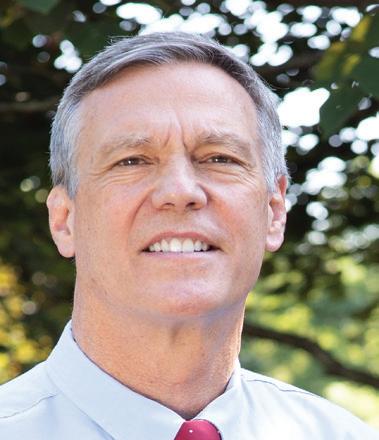
“The demands placed on me as a dental student brought me to my knees begging the Lord for help, and in my weakness the joy of the Lord became my strength. It was a group of medical and dental students I met with regularly that showed me for the first time what it meant to abide in Christ.”
—WILLIAM GRIFFIN, DDS, YORKTOWN, VIRGINIA
CMDA Member since 1981 • Lifetime Member since 2024
“I was introduced to CMDA when I was in nursing school at the University of South Florida College of Medicine in 1989. While attending a CMDA conference a few years later, God called me to Africa to help in the battle against AIDS.”
—TRACEY RZEPKA, APRN, PMHNP, SARASOTA, FLORIDA
CMDA Member since 1988 • Lifetime Member since 2024
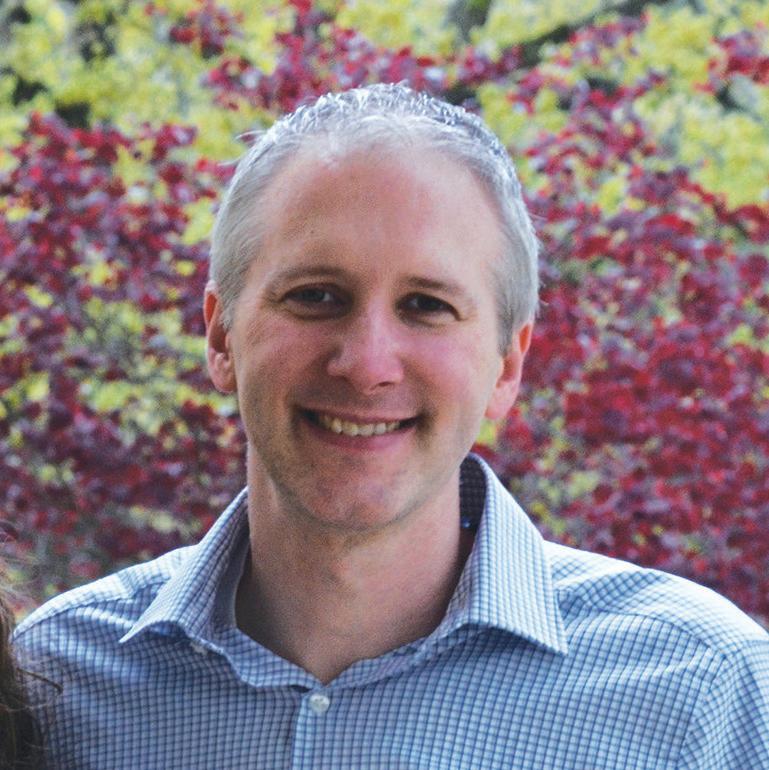
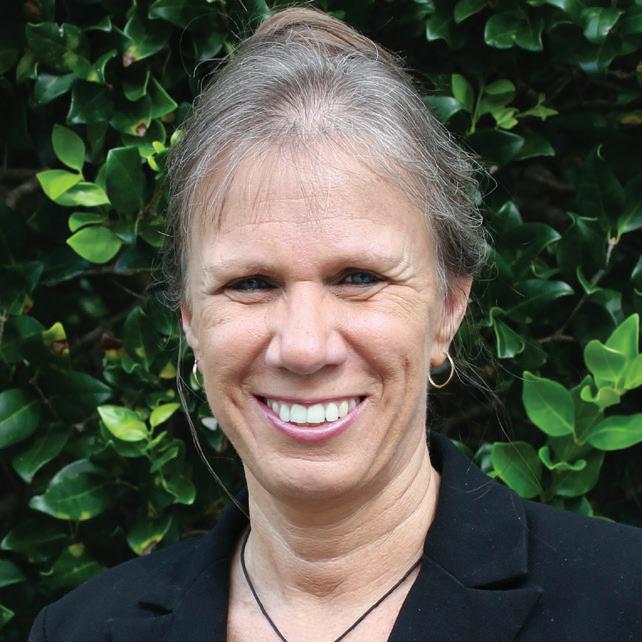

You made it! You survived the educational phase of your career and are finally declared ready to provide the patient treatment, the very thing that first attracted you to the healthcare profession way back when. As your clinical skills and confidence grow, you discover new challenges that weren’t so obvious early on. How does a Christian in healthcare protect their right to practice according to the dictates of their conscience? How do I address my patients’ spiritual needs in a respectful and sensitive way? And where can I find others of like mind, so we can encourage and be encouraged by each other in our struggles and successes? CMDA resources such as Faith Prescriptions, CMDA Coaching and Standing Strong in Practice enable you to navigate the ongoing challenge of keeping Christ as Lord of both your personal and professional life. You lean on friendships built through CMDA ministry connections made through local chapters, regional conferences or the annual CMDA National Convention.
“I became a Lifetime Member of CMDA because I see disturbing changes taking place in American medicine that are impacting rights of conscience. I believe Christian healthcare professionals must band together as one raising a standard of righteousness and opposing the calling of evil, good.”
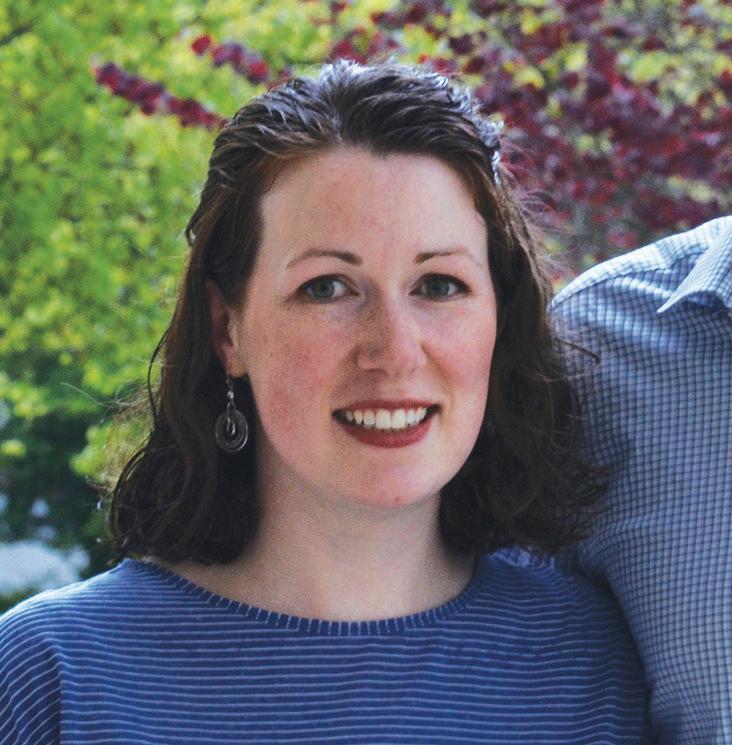

—MARC CHETTA, MD, GREENVILLE, SOUTH CAROLINA
CMDA Member since 1976 • Lifetime Member since 2021

“The biggest way CMDA has impacted my life has been through the personal relationships I have made within its ministries. To have prayerful support and encouragement by fellow Christian physicians has been so uplifting. As a physician with my heart set on Christ, caring for my patients is ministry.”
—HANNAH EVANS, MD, CARLETON, MICHIGAN
CMDA Member since 2007 • Lifetime Member since 2014
“I was first introduced to CMDA’s Women Physicians in Christ around 2012. The following year I attended the WPC Annual Conference in Texas. I could not believe there was a medical conference that met my spiritual, emotional and intellectual needs all in one place! I have had an opportunity to serve with a phenomenal group of women and develop long lasting friendships.”
—REGINA FROST-CLARK, MD, GROSSE POINTE WOODS, MICHIGAN
CMDA Member since 2013 • Lifetime Member since 2019
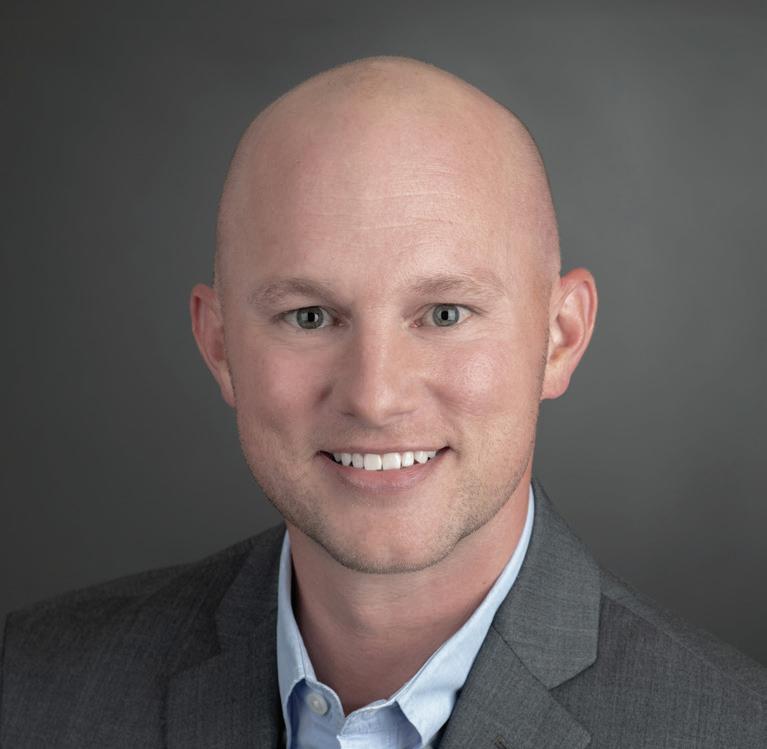


“It’s helped me do so much more than I could do on my own…I’m a small-town rural dentist, but being a part of CMDA has helped me just be a part of a bigger community. It’s helped me to be a part of an organization that stands up in advocacy for biblical truth. It’s helped equip me to serve as a Christian, as a man of faith.”
BLAKE WESTRA, DDS, MATTOON, ILLINOIS
CMDA Member since 2007 • Lifetime Member since 2021



A few decades of patient care enable you to mature clinically and spiritually to the point of having much to offer the next generation of healthcare professionals. You begin working with students or residents to help them advance in their stills and spiritual maturity. As you begin to pass on what you have learned, the grace of God becomes acutely evident in how much He has taught you over the years, and whatever sadness might attend the twilight of one’s clinical career is overcome by the knowledge that what you have learned is being powerfully recycled into the next generation.
“It is an honor to be a part of an association of Christians who feel as I do, that faith is at our core and naturally influences how we interact with patients, coworkers and business associates.”
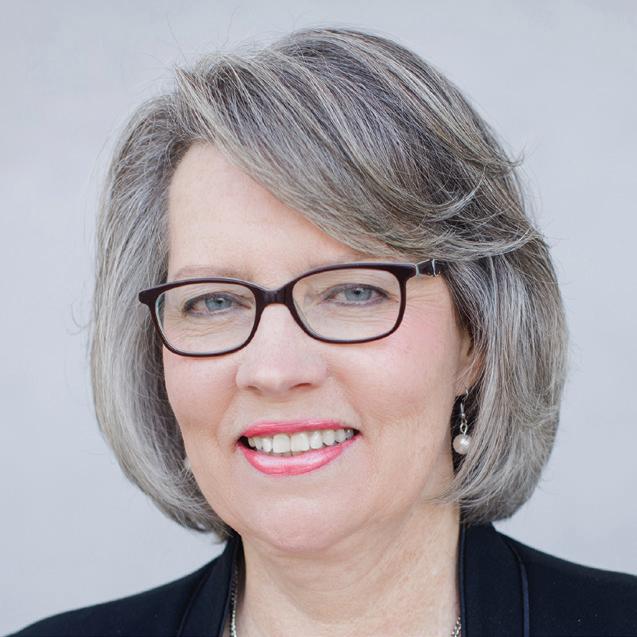
DIANNE WATTERSON, MBA, RDH, LEXINGTON, NORTH CAROLINA
CMDA Member since 2001 • Lifetime Member since 2024
We truly appreciate the commitment of each of our members, who stand with CMDA in multiple critical areas—advocating for the vulnerable, nourishing students, fostering community across the nation and being the hands and feet of Christ in healthcare. Whenever you find yourself looking back on your career, perhaps currently or several decades from now, we pray you will recognize the faithfulness of the Lord in seeing you through, enabling you to represent Christ to a world that so desperately needs Him—and bringing the hope and healing of our Christ to that world through healthcare. It’s our sincerest hope that CMDA has been and continues to be your LIFELINE FOR A LIFETIME.
“Our Lifetime Membership in CMDA has paid dividends again and again. CMDA was our lifeline during medical school, and it continues to impact how we practice, how we deal with difficult ethical issues and how we strive to fulfill our callings. THROUGH CMDA, WE HAVE MADE LIFELONG FRIENDS.”
DRS. J. MATTHEW AND CARA BROWN, JOHNSTOWN, COLORADO
Matt, CMDA Member since 1990 • Lifetime Member since 2011
Cara, CMDA Member since 1990 • Lifetime Member since 2004
All of the above quotes are from members who chose to partner with CMDA for life. And we would love to add your story to the list! We love to hear how the Lord is using this ministry and using CMDA members around the globe to bring the hope and healing of Christ to the world through healthcare. Will you share your CMDA story with us? To share your story, visit cmda.org/mystory

When you become a CMDA Lifetime Member, you make a lifetime investment in bringing the hope and healing of Christ to the world, plus you make a lifetime commitment to the ministry of CMDA. It’s truly a LIFELINE FOR A LIFETIME. It also means no annual dues payments! Your one-time lifetime membership investment eliminates the need for annual dues payments for membership renewal. To learn more, visit cmda. org/lifetime or contact CMDA’s Member Experience Team at 888-230-2637 or memberexperience@cmda.org. We’d love to hear from you!
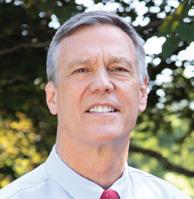
William Griffin, DDS, serves as CMDA’s Vice President for Dental Ministries. A member of CMDA since dental school, he has been a part of CMDA’s senior leadership team since 2019. He averages about four dental mission trips each year, and he also serves as the Director of CMDA’s Faith Prescriptions, designed to help Christian healthcare professionals address the spiritual needs of their patients. Dr. Griffin enjoys opportunities to communicate the love of Christ, domestically and internationally, through healthcare.

Lindsay Hawkins serves as CMDA’s Director of Human Resources and Member Experience. Lindsay joined CMDA’s Member Services department in 2018 and quickly became integral in continuing education efforts, member services and membership advancement. In 2021, she was named Membership Advancement Manager to oversee efforts to recruit and retain members. Her passion for people led her to take on the role of Human Resources Manager in 2022, where her responsibilities included recruitment and staffing, new employee orientation, benefits administration, improving HR software and systems, employee recognition programs and more. In her current role, Lindsay oversees human resources while also leading efforts to attract and retain CMDA members. She currently resides in Piney Flats, Tennessee with her husband Brian and their three children.

MEMBE R
“I am so thankful to CMDA for influencing me all these years. Thank you for the inspiring conferences through the years and now my Lifetime Membership.”
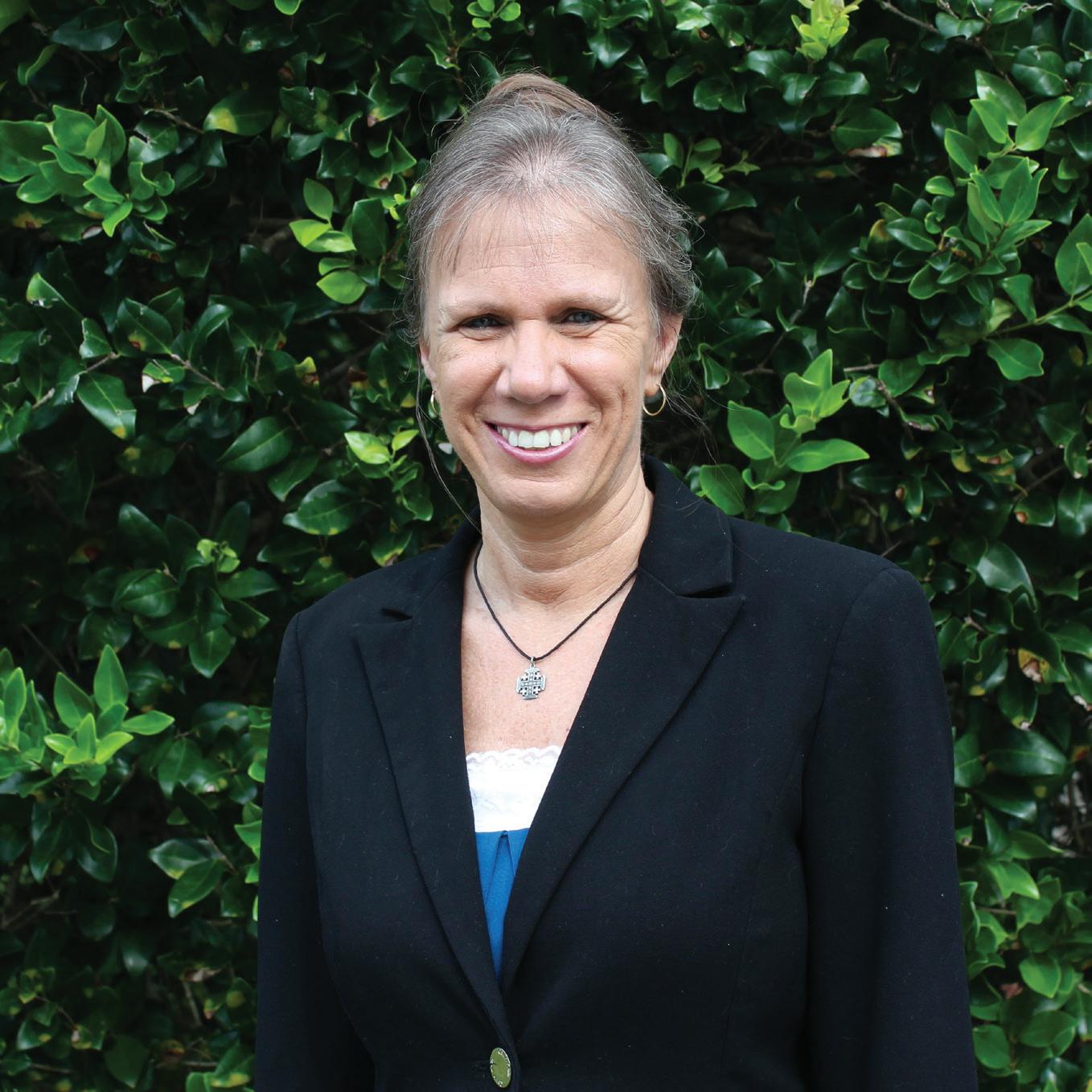
—Tracey Rzepka, MS, APRN, PMHNP
When you become a CMDA Lifetime Member, you make a lifetime commitment to the ministry of CMDA. More importantly, you make a lifetime investment in bringing the hope and healing of Christ to the world. It is truly a lifeline for a lifetime.
It also means no annual dues payments. You make a one-time payment, and then you are a member for life! Plus, you gain access to exclusive resources and events just for Lifetime Members. With new lower rates for Lifetime Members, you could see cost savings up to 60 percent from annual membership dues based on your age and category in healthcare. To learn more about being a Lifetime Member, scan the QR code or visit cmda.org/lifetime

Assisted Suicide, the Moral Dissociation Curve and Compassionate Love
RichardW.Sams,II,MD,MA
“The knowledge of good and evil seems to be the aim of all ethical reflection. The first task of Christian ethics is to invalidate this knowledge.”
—Dietrich Bonhoeffer
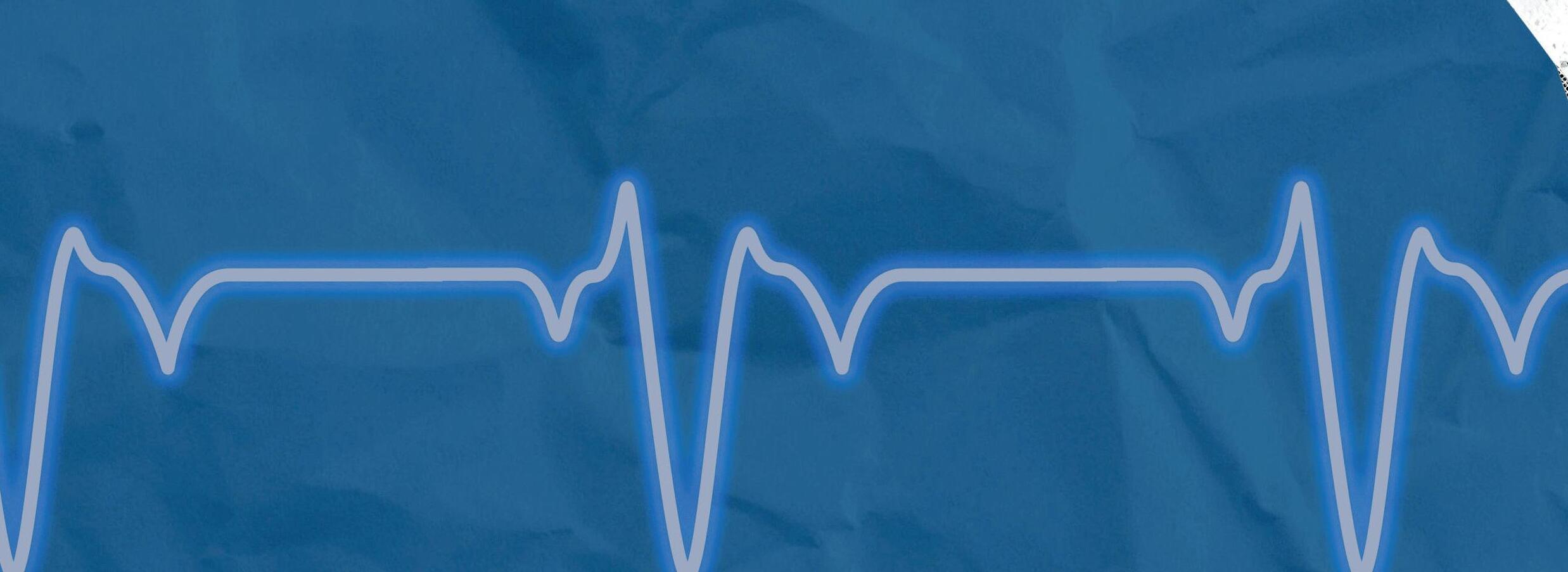

Case
You admit a 76-year-old debilitated male to a long-term care facility with a history of coronary disease, advanced kidney disease, heart failure, peripheral neuropathy and failure to thrive. He has severe neuropathic pain in his lower extremities, unbearable pruritis and constant nausea. He has seen multiple specialists who have attempted unsuccessfully to improve his symptoms. He is despairing and depressed. He expresses he can no longer live like this and repeatedly requests you give him something to end his life.
I suspect several of those reading this essay have had patients like the one described. How are we to care for this suffering person? Do we acquiesce to his request if we’re in a state where assisted suicide is legal? As a medical culture and a society, we are at a crossroads as to how we will care for the aging and infirm populations of our graying nation. Assisted suicide was considered morally illicit for millennia as proscribed in the Hippocratic Oath. This has changed with the rise of a materialist ethic based on philosophical naturalism, which rejects the idea there are any supernatural realities, including universal moral laws. Assisted suicide is now permissible in 10 states—California, Colorado, Hawaii, Montana, Maine, New Jersey, New Mexico, Oregon, Vermont and Washington—and the District of Columbia. Ballot initiatives and legislative proposals are ongoing in several other states to legalize assisted suicide. Some proponents are calling for expansion of the practice, to
killing, then assisted suicide and euthanasia are now called “Medical Aid in Dying,” “MAID” and “Death with Dignity.” All these euphemisms eclipse the reality the physician—and in some locales a physician assistant or nurse practitioner—is personally acting to help terminate a patient’s life.
The euphemism “aid in dying” blurs the distinction between assisting someone to die well naturally and assisting them by taking their lives prior to a natural death. Dying is an inexorable journey of indeterminate length not yet completed; death is the terminus ad quem, the final destination, the irreversible cessation of life. Palliation of the former is the goal of compassionate care; the latter is the goal of assisted suicide, euthanasia and “MAID.” Helping someone to die a natural death well implies addressing all aspects of pain and suffering, maximizing quality of life despite the limiting conditions and addressing emotional and spiritual problems. Assisted suicide and euthanasia require none of the above to take place. They only require a person having a period of suffering to ask some-
“And yet I will show you the most excellent way.”
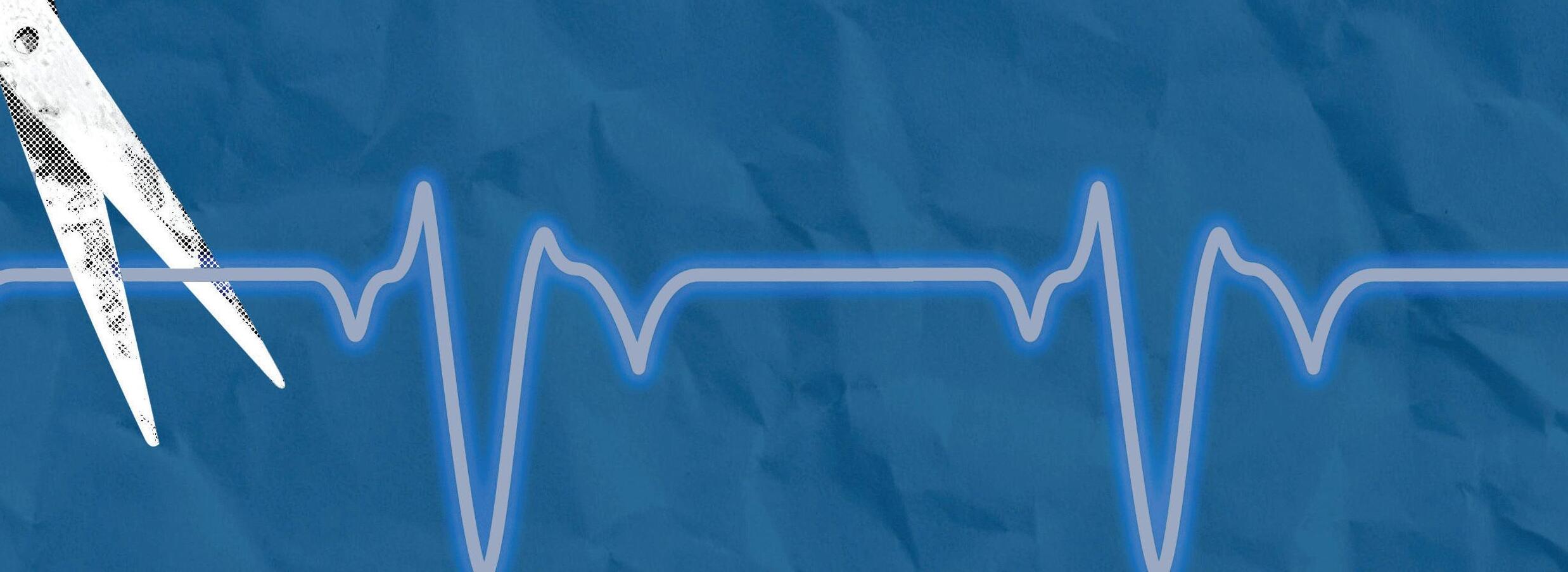
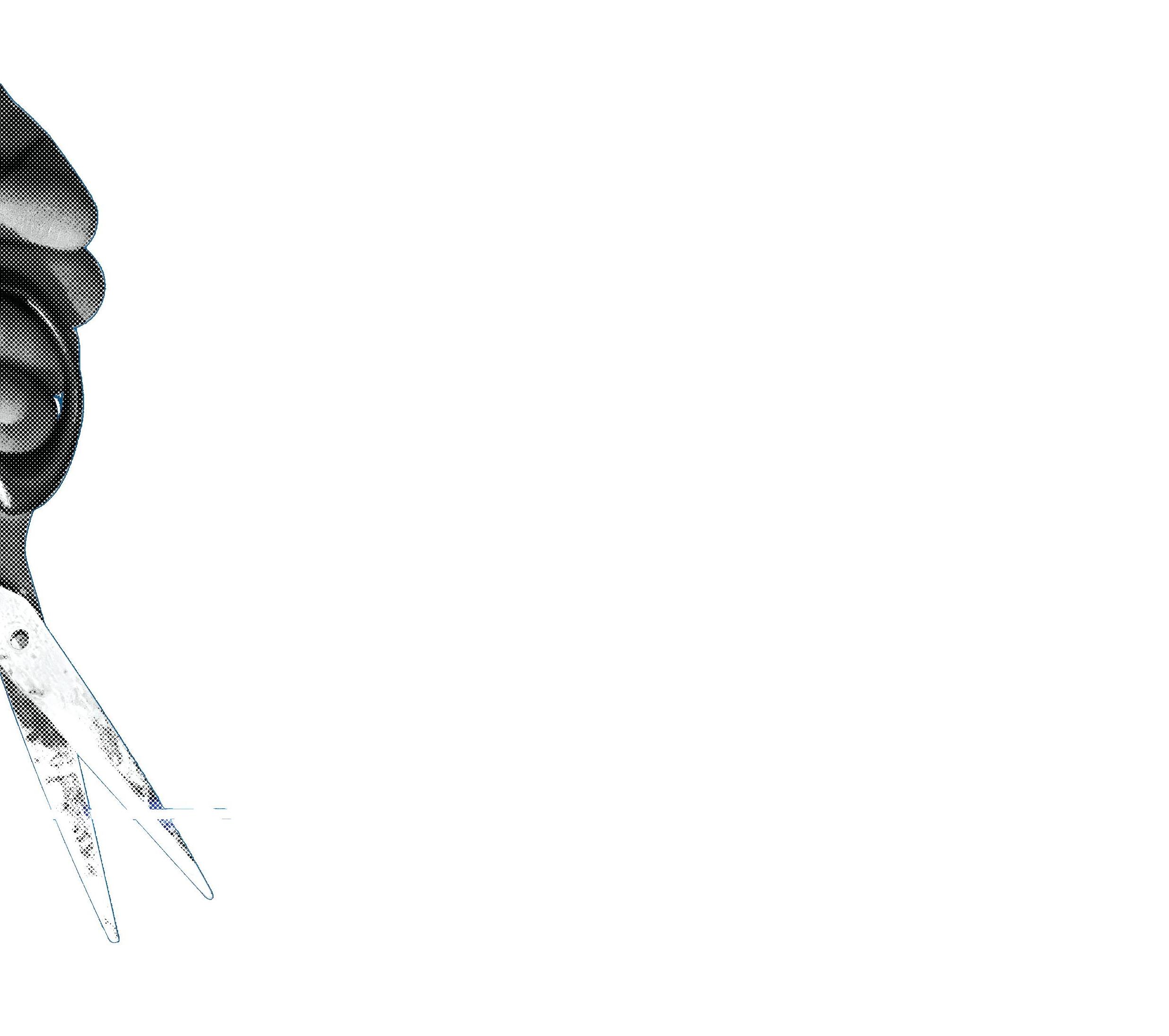
include those with chronic non-terminal conditions, mental health conditions and those simply “tired of life.” Some advocates declare there should be no criteria. If a person desires to die, the physician should provide the service. Others say we should practice euthanasia like Canada, the Netherlands and Belgium, personally administering a lethal cocktail of medicines to the suffering who desire death.
Proponents and advocacy groups are flooding our state legislatures, medical journals and web spaces with euphemisms to normalize this sea of change in healthcare. The primary U.S. national advocacy group, once called the Hemlock Society, is now Compassion & Choices. What was originally mercy
one to assist them to end their lives. Both are attempting to help a suffering person. Only one is terminating the life of the suffering patient. These realities are not expressed by proponents, only that we are helping patients fulfill their wishes about their own lives.
The Lie of Autonomy is the Driving Force
CMDA’s state advocacy and ethics arm, the American Academy of Medical Ethics (AAME, ethicalhealthcare.org), is working to prevent the spread of assisted suicide laws across the country through advocacy within the state medical societies, specialty societies and engaging with state and federal government officials. Even as the AAME is working, an endless
supply of funds and proponents are actively pushing for the normalization of the practice. CMDA Senior Vice President of Public Policy and Bioethics and AAME President Dr. Jeffrey Barrows recently stated that turning the tide of this trend is incredibly difficult politically since political discourse and legislation are downstream from culture. Cultural trends guide policy, laws and practices.
What is the fundamental ethos in our society resulting in the acceptance of assisted suicide and euthanasia by such large numbers of people?
What is the fundamental ethos in our society resulting in the acceptance of assisted suicide and euthanasia by such large numbers of people? In a word, autonomy. All proponents of these practices cite autonomy of the person as the primary justification. The popular understanding of autonomy is, you are your own self-legislator: auto – self, nomos – law. You decide what is right for you. The notion of autonomy is the founding concept of democratic liberalism and medical ethics. On a deeper level, this idea reflects we have rejected God in being our Lawgiver, our Reference Standard and our Compass. The closing stanza of the poem Invictus by Henley reflects this reality: “It matters not how strait the gate, how charged with punishments the scroll, I am the master of my fate: I am the captain of my soul.” 2 A common refrain from some is, “I can choose to die on my own terms.”
Where has philosophical naturalism, the notion autonomy and the subsequent nihilism left us as a culture? We have epidemics of depression, anxiety, drug use and deaths of despair with more than 150,000 persons dying from drug overdosages or suicide per year. 3 Even before the COVID-19 pandemic, the U.S. life expectancy decreased secondary to suicide and drug overdosages. 4 Amidst our despairing culture, we are now asking physicians to assist our suffering patients to end their lives.
The moral dissociation curve helps us understand how leaders in our own profession have come to the point of justifying physicians ending the lives of their patients. See Figure 1 for reference. The moral dissociation curve serves
as a bridge between meta-ethical theory, applied ethics and their relationship to moral clarity on a given issue. It reflects an a priori commitment to the presence of transcendent moral law to include universal moral laws and virtues. C.S. Lewis provided the best-known defense of transcendent moral law in his book The Abolition of Man He calls transcendent moral law the Tao (the way), and he demonstrates that consistent fundamental moral values, virtues and laws have been present in independent civilizations throughout human history. When we reject the fundamental moral law, do not kill, and the corollary moral principle for healthcare professionals, do not intentionally end the lives of your patients, and are guided only by autonomy and a utilitarian ethic, our moral vision dims. If, as a culture, we completely reject universal moral law or any of its corollary principles and descend into nihilism, we are left with right and wrong determined by the loudest voice, the majority vote or the strongest arm. What is right or good becomes purely subjective, guided only by emotion and impulse. This is the situation in our cultural moment. Pitirim Sorokin called it a sensate culture; one dominated by materialism and hedonism. 5
As Christ followers, we intuitively understand the reality of transcendent moral law—moral laws and virtues in existence from eternity. We humans did not devise them, nor did the state. We discover them with the eyes of our heart when we humbly recognize we are not our own and are accountable to One bigger than ourselves. We know God is the Reference Standard.
We also recognize we are not autonomous. In the words of the poet Jon Donn, “No man is an island, entire of itself. Every man is a piece of the continent, a part of the main… any man’s death diminishes me.” 6 As Wendell Berry declared in The Unsettling of America: Culture and Agriculture , autonomy is an illusory condition, “suggesting that the self can be self-determining and independent without regard for any determining circumstance or any of the obvious dependences. This seems little more than a jargon term for indifference to the opinions and feelings of other people. There is, in practice, no such thing as autonomy. Practically, there is only a distinction between responsible and irresponsible dependence.” 7 Humans are not autonomous islands floating in the sea of humanity. We are highly interdependent upon each other. What affects one directly, affects all indirectly.
You listen carefully to your hurting patient, striving to understand the reason behind his request. You sense he feels powerless in the face of his decline and incapacitating symptoms. You express to him that you are going to work with him to get the symptoms under control and, with the help of your multidisciplinary team, help him achieve the best life possible. Given the palliative nature of his condition, you offer to schedule him with lower dose opioids to first relieve the pain. He is grateful. He takes the medicine only for a matter of days, his pain is improved and he states he doesn’t need it anymore. You perform a careful medicine reconciliation and recognize the myriads of medicines provided by the specialists produce side effects that include his symptoms. You de-prescribe judiciously and provide a counter-irritant cream for his neu-
They need
physicians, nurses and others in healthcare who are willing to walk alongside them in their suffering—the true meaning of compassion.
Finally, we recognize ethics is God’s mother tongue, His eternal word. Without God, ethics is nothing, it’s gibberish. The eternal commands, such as do not kill, serve as guardrails from our base temptations as humans. We know our suffering patients do not need physicians willing to take their lives. They don’t simply need physicians who say no to assisted suicide. They need virtuous physicians, nurses and others in healthcare who are willing to walk alongside them in their suffering— the true meaning of compassion. If unable to cure, we seek to relieve symptoms and care for the dying to the point of natural death. The virtues of medical care—presence, empathy, fidelity to the person, courage, wisdom, temperance, humility and bedside grace—should guide and shape our actions to our suffering patients. These are tied together by agape love, which seeks the highest good for the patient. Social science researchers call this type of love compassionate love. As Christian healthcare professionals, compassionate love needs to be our hallmark when caring for the suffering—and when we engage in advocacy and policy formation.
ropathy and schedule antinausea therapy, and medicine for his depressive symptoms. All his symptoms abate, and he ceases to ask to have his life ended. You visit him regularly to get to know him as a person, expressing interest and care for him and his family. Each time you see him, he expresses gratitude for how you have taken care of him.
We are at a critical time as a culture. It needs not consequential arguments against assisted suicide. It needs a resuscitation of God consciousness. An ethics founded in transcendent moral law can serve as a gateway to God. We can no longer shirk back from basing our arguments on eternal laws. We do need to be non-sectarian in nature. We simply call for a humble recognition that there are moral laws we did not devise as humans but are to follow. In so doing, we may mend the conscience of our blinded culture and ascend the moral dissociation curve. As Bonhoeffer declared, the fruitless reflections of secular ethics need to be invalidated. We need to courageously

declare that we must stand firm in the Hippocratic Ethic in protecting the vulnerable through all stages of life, seeking the ultimate good for the patient with compassion and moral integrity, and say “no” to willfully ending our patients’ lives.
Even more important, our despairing culture and our patients need an infusion of hope, not lethal substances. As Anne Frank declared in her diary, “Where there is hope, there is life. It fills us with courage and makes us strong again.”8 As Christians, we know the Good News for the despairing patient and the source of hope and faithful love. In our fight against the cancer of assisted suicide, let us not be afraid to hold out the banner of our hope to our suffering patients and our policymakers. We may or may not stem the tide of assisted suicide laws, but we will be a beacon of light to the suffering.
As one of the core aspects of CMDA’s ministry efforts, CMDA’s Advocacy team is dedicated to serving as a Christian healthcare voice in the public, to the media and to the government. And we do that through our grassroots advocacy efforts on both state and federal levels as we stand together to protect the vulnerable and bring the hope and healing of Christ to the world through advocacy. For more information and to get involved, visit cmda.org/advocacy
We may or may not stem the tide of assisted suicide laws, but we will be a beacon of light to the suffering.
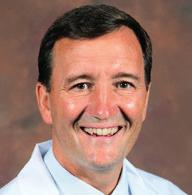
Dr. Sams would like to thank his friend Dr. Pete Jaggard for collaborating as a co-author in other publications on the topic. A number of his ideas previously expressed in those papers are present in this article.
1 Bonhoeffer, Dietrich. Ethics. New York, Macmillan Publishing Co, 1965.
2 https://poets.org/poem/invictus
3 https://www.cdc.gov/suicide/facts/data.html#cdc_data_ surveillance_section_3-suicide-deaths-plans-and-attempts-inthe-united-states
4 https://pmc.ncbi.nlm.nih.gov/articles/PMC8579049/
5 Johnston, B. V. (1998). PITIRIM A. SOROKIN AND SOCIOLOGICAL THEORY FOR THE TWENTY-FIRST CENTURY. Michigan Sociological Review, 12, 1–23. http://www.jstor.org/stable/40969020
6 https://allpoetry.com/No-man-is-an-island
7 Berry, Wendell. The Unsettling of America: Culture & Agriculture San Francisco, Sierra Club Books, 1977.
8 Frank, Anne, 1929-1945 author. The Diary of a Young Girl: the Definitive Edition. New York: Doubleday, 1995.
Richard W. Sams, II, MD, MA, is a graduate of Boston University School of Medicine and Waukesha Family Practice Residency. He completed an master of arts in bioethics at Trinity International University and the faculty development fellowship at Madigan Army Medical Center. He completed a 22-year career in the U.S. Navy. He is a Professor in the Department of Family and Community Medicine at the Medical College of Georgia and Medical Director of Georgia War Veterans Nursing Home, where he teaches, practices and conducts research. He has 36 peer-reviewed publications and is a founding board member of the American College of Family Medicine. He is currently the CMDA Georgia State Representative and one of the state directors for the AAME. Dr. Sams and his wife Teri have been married for 35 years, and they have five children and three grandchildren.
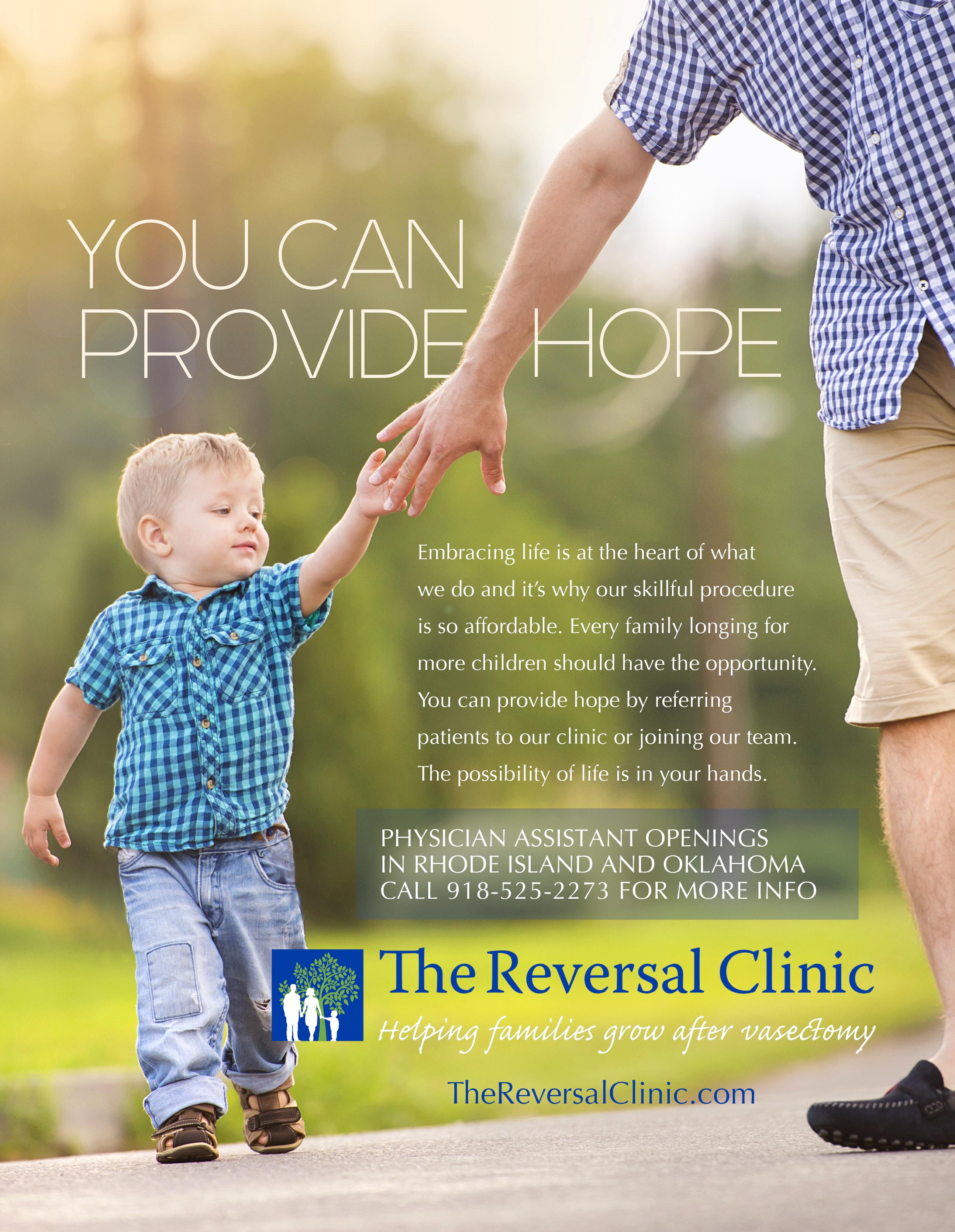
The Dr. John Patrick Bioethics Column
Only recently has British academic and ethicist Oliver O’Donovan made me see how different these two concepts are, despite the same purpose of providing guidance for peaceful living. Behavioral norms are common to all societies, and once established they resist change very effectively for long periods of time. They become what Hungarian philosopher and author Michael Polanyi and British philosopher Lesslie Newbigin call tacit knowledge. Things we know without being able to rationalize the process. To readers of this journal, the best example of tacit knowledge in your life is your conversion. It is an undeniable foundational reality, but we do not know how it happens except that our Lord likens it to the wind, which we cannot explain but simply experience. Our Lord says it is an analogy to the work of the Spirit in our souls.

The worst secularists, despite their alleged loyalty to evidence, try to call conversion subjective nonsense. The fact that “the nonsense of conversion” changed the world and ultimately gave birth to modern experimental science is simply ignored by the arrogant secularists. It has taken modern ideas of rationality, which are tacitly atheistic, centuries to displace commonly held views derived from JudeoChristian religion. The fact is all the behavioral norms that have ruled the West go back to a belief that our laws are a gift from God and are, therefore, authoritative with their consequences worked out in history. Common law, arguably the greatest gift to democratic government, enshrines respect for the reasonableness and sense of justice of the common man. The modern ideas of secularism have only succeeded amongst the so-called “elite.” They persuade themselves that their theories are pure rationality, but they fail at the first question: What is your self-evident starting premise? Their answer that matter and chance are all we need is not self-evidently true. Do they really think true love can be founded on their premise? Can an evolutionist truly explain the love that will die for others? C.S. Lewis insists quietly but firmly that if nothing can be assumed nothing can be proven. The traditional views found roots in the life experiences of the tribe, nation or people group, and they were accepted by almost everyone because they produced solidarity and gave everyone a sense of belonging. They were used to resolve differences, and that history was revered and accepted as reasonable. Quibbles were common, but denial of the narrative was not.
Polanyi expressed the strengths and wisdom (a word which does not appear in the modern curricula) of ancient ways beautifully. In 1946, he wrote:
“The adherents of a great tradition are largely unaware of their own premises, which lie deeply embedded in the unconscious foundations of Practice… if the citizens are dedicated to certain transcendent obligations and particularly to general ideas such as truth, justice and charity and these are embedded in the traditions of the community to which allegiance is maintained, a great many issues between citizens, and all to some extent can be left —and are necessarily left to individual consciences to decide. The moment however a community ceases to be dedicated to transcendent ideals, it can continue to exist undisrupted only by submission to a single centre of unlimited secular power.”
Polanyi watched Communism destroy the moral backbone of Russia and eastern Europe. The last election in the United States had this phenomenon as a sub-text, which was not understood by the elite, but President Trump, perhaps unconsciously, was evoking these deeply embedded premises of Western society.
I grew up in a society where the deeply embedded and certainly unconscious foundations were biblical, and its citizens settled differences as Polanyi describes. Arguments would usually stop when one side could say, “The Bible says….” Even more impressive was the fre-
quency where one side could say their treatment had been unfair and the other side would not deny the charge but try to deflect the argument by some form of special pleading. (Read the first chapter of Mere Christianity for this to be laid out by C.S. Lewis.) Race is irrelevant; it is all about culture, and cultures decay when they are not taught. Multiculturism leads to division and identity politics, trapping large groups into a narrative of victimhood and hatred.
Vishal Mangalwadi, whose tacit world had been Hindu, gives an amusing yet profound account of his first encounter with JudeoChristian culture in rural Netherlands in The Book That Made Your World: How the Bible Created the Soul of Western Civilization. Mangalwadi and his host, Jan, went to collect milk from the local dairy farm: “a neat and tidy dairy farm with about 100 cows but no human beings. The cows were milked automatically; the milk was pumped into a large tank… Jan filled his jug, put 20 guilders into a bowl and helped himself to change from the bowl.”
Mangalwadi comments that in India both the milk and the money would be taken. He could see what a difference this kind of trust makes. In India, neither business owner nor customer are trusted. A cashier would be needed, along with inspectors to make sure the farmers don’t add water to the milk, all paid for by the customer. Milk then becomes more expensive, corruption is part of each step and bribes are necessary to complete the simple task of buying milk. Cashiers, inspectors and bribes add no value to the milk. Ice cream does add value, but it is now too expensive to buy. He wrote, “That reduces our economy’s capacity to create jobs.”
As an illustrative aside, my neighbor sold sweet corn and other produce for years by putting a sign at the farm entrance and simply leaving the produce in a shed with a pricelist and a box for payment. Theft forced him to stop, because our culture is decaying. In the Darwinian worldview, everything is a battle for resources and ends entirely justify means. As C.S. Lewis put it in The Abolition of Man, “we laugh at honor and are surprised to find traitors [and thieves] in our midst.” And of course, the thieves are rational because, why wouldn’t anyone brought up as Darwinian rationally do that? (If you haven’t read David Stove’s book Darwinian Fairy Tales, order it now for a serious read of wonderful humor and intellectual honesty by an atheist who sees more clearly than we do.)
Scholarships took me to university, and within weeks I had become a reductionist without anyone using the word. So-called “higher education” changed my world, by displacing the Scriptures with their rich morally consequential narrative with another god— scientific rationality. Claiming no need for God, we were taught that science, using only objective measurements, will make a better world. In those days in the 1950s, it looked realistic: the power of the first antibiotics was stunning; effective drugs of all sorts were appearing; and new techniques like dialysis and open-heart surgery were being developed. Only a few doctors were doing laboratory research, and those who were all knew one another, meaning there was virtually no fabrication of scientific data because we presented our data orally to one another. It was both terrifying and wonderful, particularly how the great and famous had time for neophytes. There was no discussion of ethics, because everyone knew everyone else and knew whose work might need to be repeated before being
believed! Can we say we have made the world better in the ensuing 65 years of technological brilliance and moral decay?
Providentially, right at the beginning of university, I was also introduced to a high level of expository preaching, literally my first Sunday in London. A Christian student took me to hear Dr. Martyn Lloyd Jones at Westminster Chapel, where he offered 50 minutes to an hour of rigorous exposition. I was enthralled and soon learned there were several preachers of similar quality in London. For the next five years, they educated me in the Scriptures, but integration of my two worlds was not part of the process. The question of morality and its foundations are still the big questions for a medical student. Meaning, justice, suffering, death and sexuality are still not given the depth of teaching needed. A few physicians did try, but I did not know them personally. The majority seemed to live intellectually incoherent lives, as I did too. The physicians I admired seemed to have no need of Christianity, and those who wore their faith on their sleeve were often not the best of physicians. (These days, I tell students not to try to evangelize their class because they are watching you; instead, you must just try to live a life worthy of your Lord, that it will be noticed.)
The books that first brought the two worlds into conversation with each other for me were Lesslie Newbigin’s Foolishness to the Greeks, Dietrich Bonhoeffer’s The Cost of Discipleship, Martyn Lloyd Jones’ Surprised by Joy and, of course, C.S. Lewis’ works, especially The Abolition of Man. Between them, they showed what a coherent Christian life would look like. It is a life made up of experience, passion, duty and wisdom all recognized as grace and coming out of serious study. Salvation as the daily process of being saved, is an inch-by-inch struggle. This is Paul’s admonition to Timothy to study to become a workman who needs not to be ashamed rightly dividing the word of truth (2 Timothy 3:15). This process produces a world where what is reasonable is also true, always a humbling experience as you realize how much could have been done but hasn’t been done, sins of omission and commission. This is why I think our churches need to look at worship to see if it recognizes that confession and assurance of forgiveness are the basis for genuine worship.
The contrast between this way of life and the angry, patronizing rationality of today’s world is unmeasurable. As real scientists make the case, there is hope the complexity of modern molecular biology, genetics and cosmology are simply not explicable based on random events, and neither can their tacit belief that every problem is simply a matter of ignorance so education will fix it. We all know that good and evil are real; our problem is to develop the will to study to become a workman and live within God’s truth.
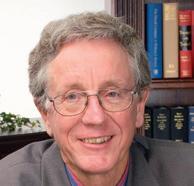
John Patrick, MD, studied medicine at Kings College, London and St. George’s Hospital, London in the United Kingdom. He has held appointments in Britain, the West Indies and Canada. At the University of Ottawa, Dr. Patrick was Associate Professor in Clinical Nutrition in the Department of Biochemistry and Pediatrics for 20 years. Today he is President and Professor at Augustine College and speaks to Christian and secular groups around the world, communicating effectively on medical ethics, culture, public policy and the integration of faith and science. Connect with Dr. Patrick at johnpatrick.ca. You can also learn more about his work with Augustine College at augustinecollege.org
To place a classified advertisement, contact communications@cmda.org.
Condo for Sale — Looking for a new residence in Philadelphia, Pennsylvania? Philadelphia has more hospitals per square mile than other U.S. cities, and this beautiful, updated condo in a semi-private, 16-unit building is perfect for a busy professional. With floor-to-ceiling windows highlighting a spectacular view of the Benjamin Franklin Bridge and much sunlight, this 2,100 square foot unit has a large, open living space (perfect for entertaining), two large bedrooms (each with recently renovated baths and walk-in closets) and an office. Custom artisan cabinetry in the master bedroom and office provides extra storage. Ownership includes an on-site parking spot, along with a nearby parking garage for guests. The building is located in one of the best neighborhoods in the city, with dog parks, riverwalks, restaurants, shops and fantastic historic sites all within walking distance! Convenient access to local highways and the Ben Franklin Bridge. For more information, visit https://www.zillow. com/homedetails/122-New-St-5F-PhiladelphiaPA-19106/2131711103_zpid
Dental Practice for Sale — Dental Practice and building for sale. Central Virginia. Taking insurance and Medicaid. Many Christian
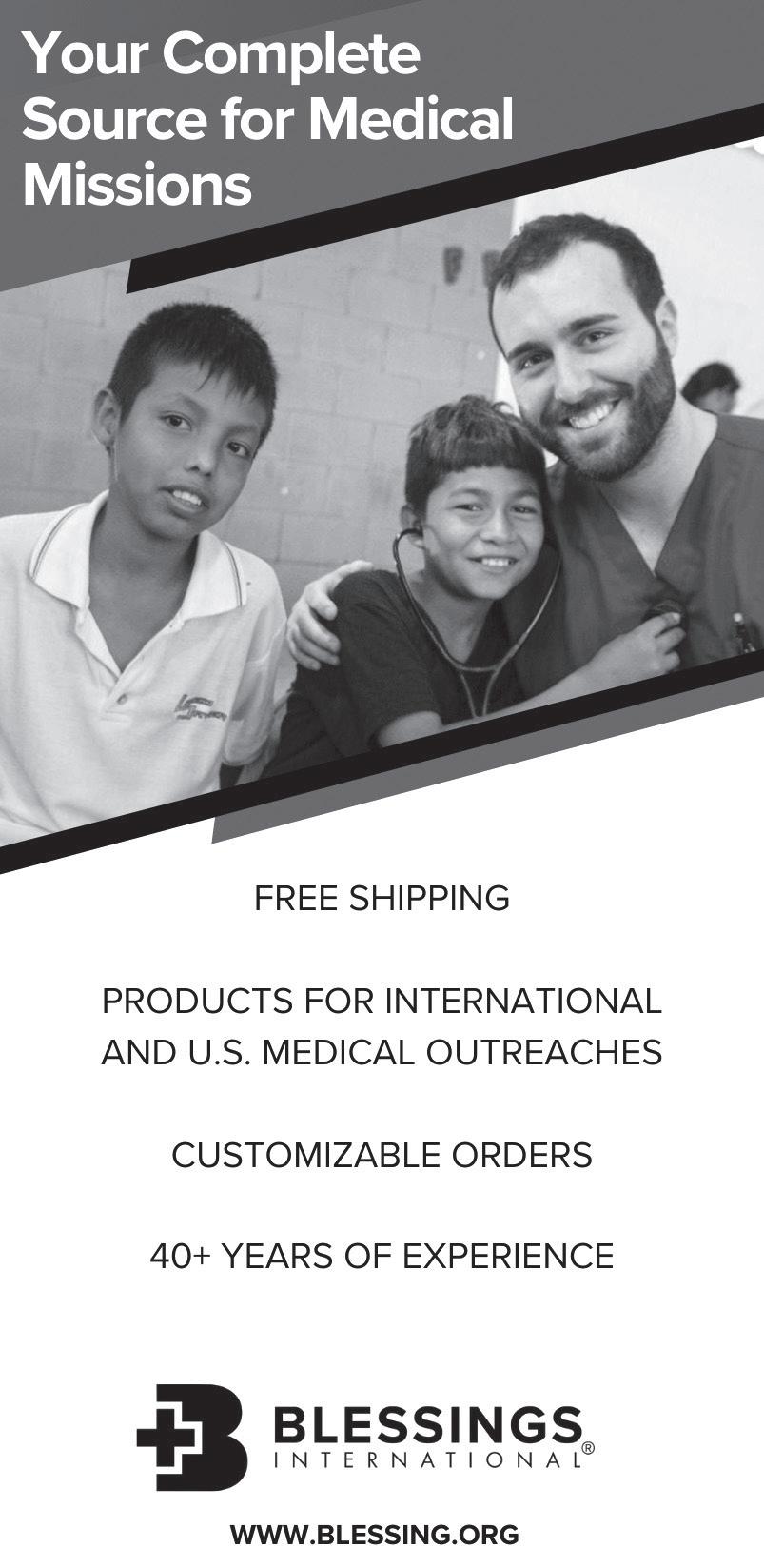
patients and many that need to find the Lord. Overtly Christian office environment. mary194990@gmail.com
Director of Didactic Education and Assistant/ Associate Professor of Physician Assistant Studies — If you are an experienced physician assistant who seeks to serve with a missionminded institution, we are interested in speaking with you. Cedarville University and our School of Allied Health and Psychology invites applications for the position of Director of Didactic Education (DDE) for our recently launched Physician Assistant (PA) graduate program. This position is a full-time faculty position. Rank is commensurate with experience. Under the supervision of the PA Program Director, the DDE is responsible for the overall leadership and day-to-day management of the didactic phase of the PA Program. The DDE works with the Program Director to oversee and facilitate the didactic experience for faculty and students in accordance with the ARC-PA Standards, providing a curriculum of sufficient breadth and depth to prepare students for the clinical practice of medicine. The DDE will develop, maintain, oversee and ensure adequacy and appropriateness of all didactic courses to ensure they are in accordance with ARC-PA standards as well as program outcomes and goals. Learn more about position requirements and submit an employment application at www.cedarville.edu/offices/human-resources/ prospective-employees. Official inquiries should be directed to Director of Academic Human Resource Services, Jennifer Cochran, SHRMCP at hr@cedarville.edu. Position-specific inquiries should be directed to PA Program Director, Jason Grahame at paprogram@ cedarville.edu
— Do you long to see God work through your physician assistant practice? We are the largest vasectomy reversal practice in the U.S. Our two-fold mission is to help all our patients multiply physically and help some multiply spiritually. Thus, we train spiritually and medically. If you proficiently enjoy simple skin suturing; if you want to make disciplemaking disciples of Jesus among your patients; and if God is calling you to this work, we can train you in this medical ministry to fulfill the Great Commission. Come join us at our Warwick, Rhode Island or Fort Gibson, Oklahoma locations. Contact drdavid@ thereversalclinic.com.
Physician Assistant Educator — Are you a passionate, Christ-pursuing physician assistant with a minimum of three years clinical experience? We are seeking a faculty member to join our team in a clinical and administrative role, with opportunities to teach and mentor
future healthcare leaders, instilling a “missional mindset.” California Baptist University (CBU) is located in beautiful Southern California. Our program offers the perfect blend of mountains and beaches, all within an hour’s reach. You’ll work with the Director of Clinical Education in a supportive, teambased environment. CBU has one of southern California’s most successful programs, boasting a 0 percent attrition rate and a 100 percent first-time PANCE pass rate in 2023. https:// jobs.calbaptist.edu/postings/8868
Senior Associate Dean — Liberty University College of Medicine (LUCOM) in Lynchburg, Virginia has partnered with AMN Leadership Solutions in their search for a new Senior Associate Dean. The mission of LUCOM is to develop community-based osteopathic physicians within a Christian environment, imparting the values, knowledge and skills essential for excellence in caring for a patient’s body, mind and spirit as well as imbuing a passion to provide high-quality medical access to underserved patients. The Senior Associate Dean (SAD) reports directly to the Dean of LUCOM and is responsible for oversight and management of academic and clinical operations of the COM, which includes curriculum development, maintenance, delivery and assessment in OMS I, II, III and IV, and related curricular activities; student, faculty, staff and resident/fellow research engagement and the production of scholarly activity; compliance with accreditation requirements; budgetary oversight; and engagement of the respective teams in the strategic plan of the COM. Qualifications include: terminal medical degree (Doctor of Osteopathic Medicine [DO] preferred); current board certification in appropriate area of specialization, if applicable; demonstrated leadership and productivity in the areas of clinical or professional service, scholarly activity, medical research or education within an accredited medical school; and minimum of five years of academic leadership experience in the context of a medical school environment as a Department Chair, Assistant or Associate Dean, or equivalent experience in UME or GME. LUCOM offers the Doctor of Osteopathic Medicine degree and holds full initial accreditation from the American Osteopathic Association’s Commission on Osteopathic College Accreditation (AOACOCA). LUCOM graduating students have matched into residency programs at impressive rates. In fact, on the 2024 Match Day LUCOM saw yet another year with 100 percent of graduating students matching into residency training programs. Inquiries, applications and referrals can be sent to Beth Ross at beth.ross@ amnhealthcare.com. Initial inquiries will be handled in confidence.

I
“Absolutely
amazing!
would not have found my job without CMDA Placement Services.”
—
Rachel VanderWall, NP
“It’s a valuable source for colleagues who recognize that their calling to medicine is a calling to ministry.”
— The Jackson Clinic
We exist to glorify God by placing healthcare professionals and assisting them in finding God’s will for their careers. Our goal is to place healthcare professionals in an environment that will encourage ministry and also be pleasing to God.
We make connections across the U.S. for healthcare professionals and practices. We have an established network consisting of hundreds of opportunities in various specialties.
You will benefit from our experience and guidance. Every single placement carries its own set of challenges. We help find the perfect fit for you and your practice.


